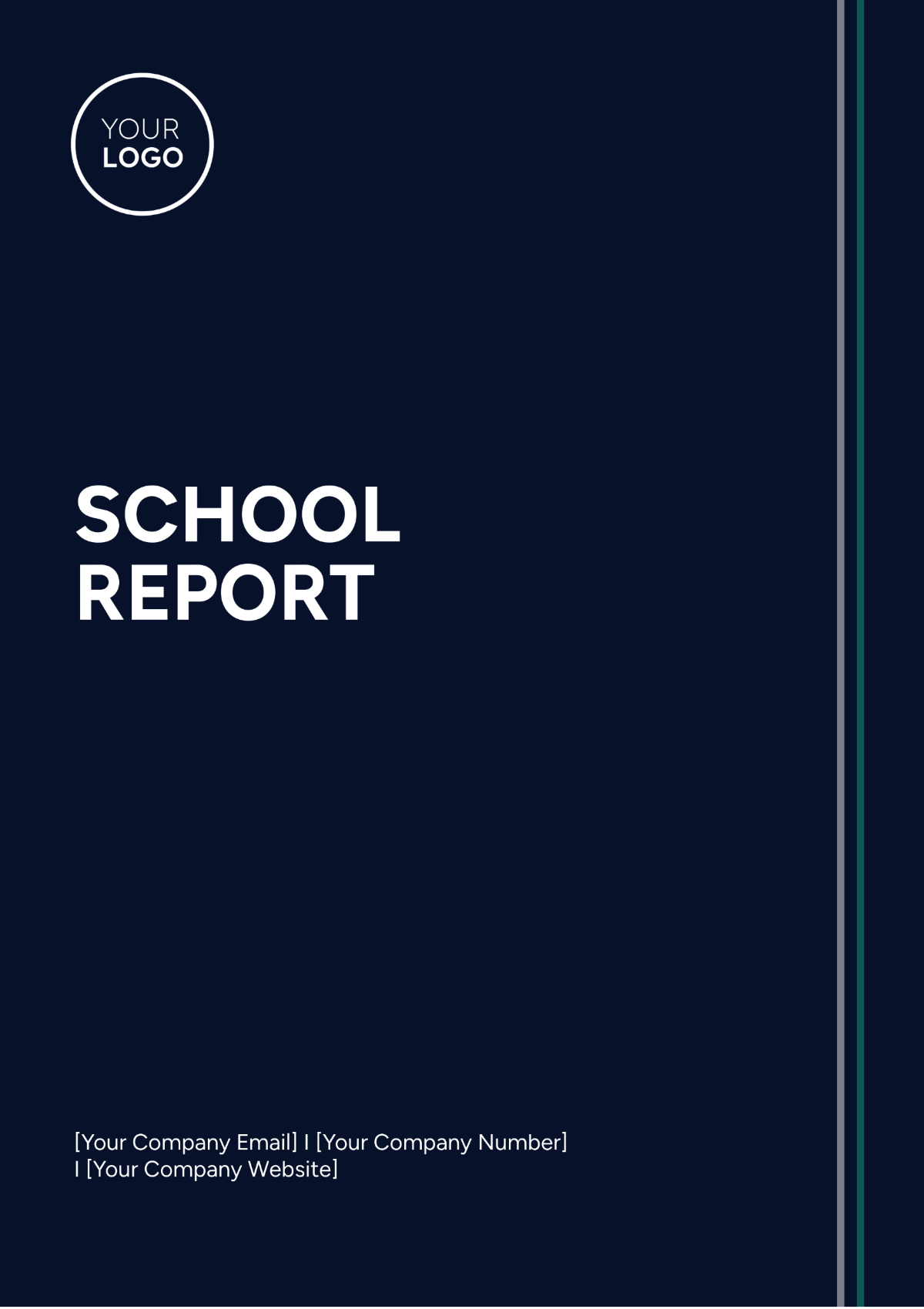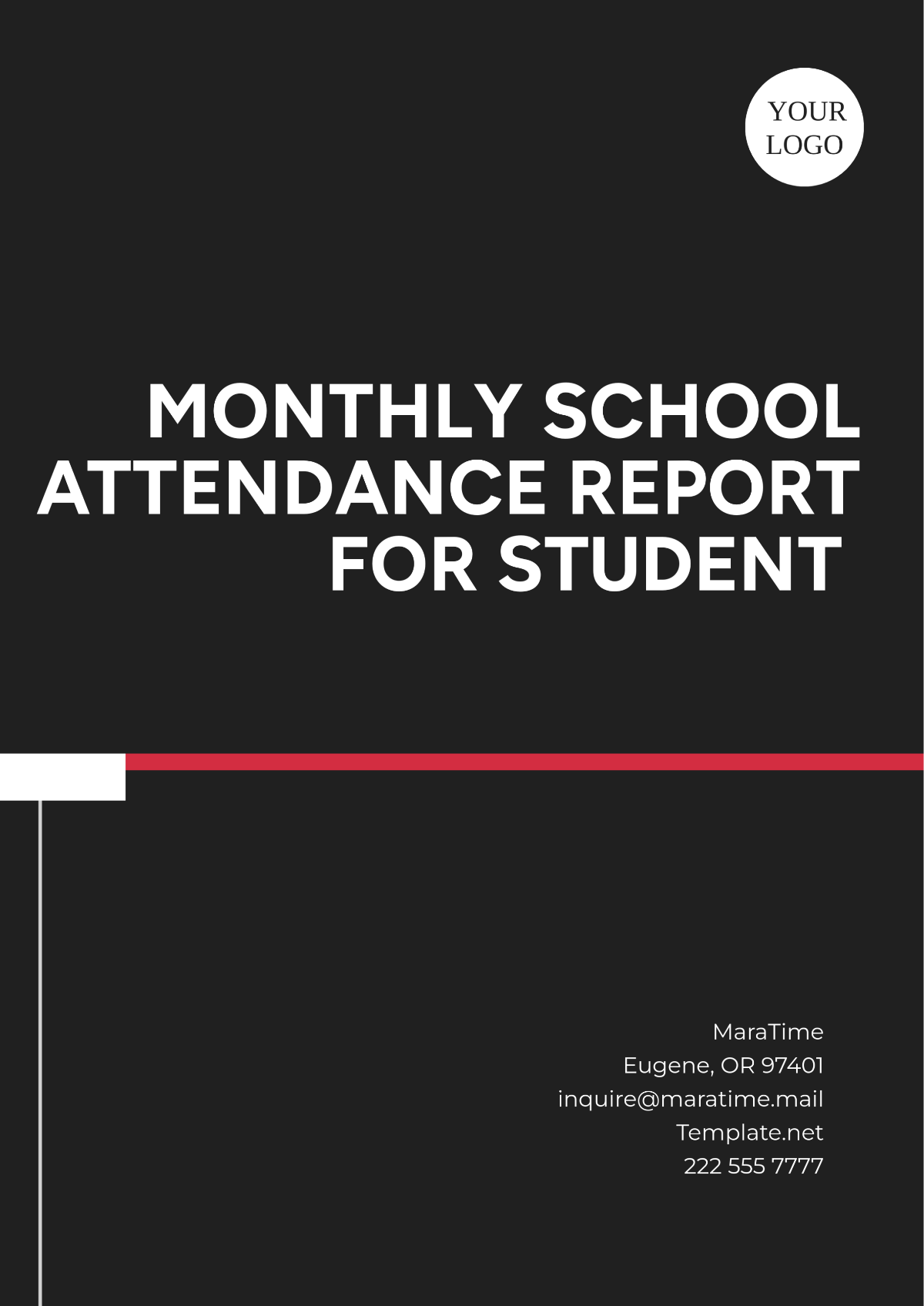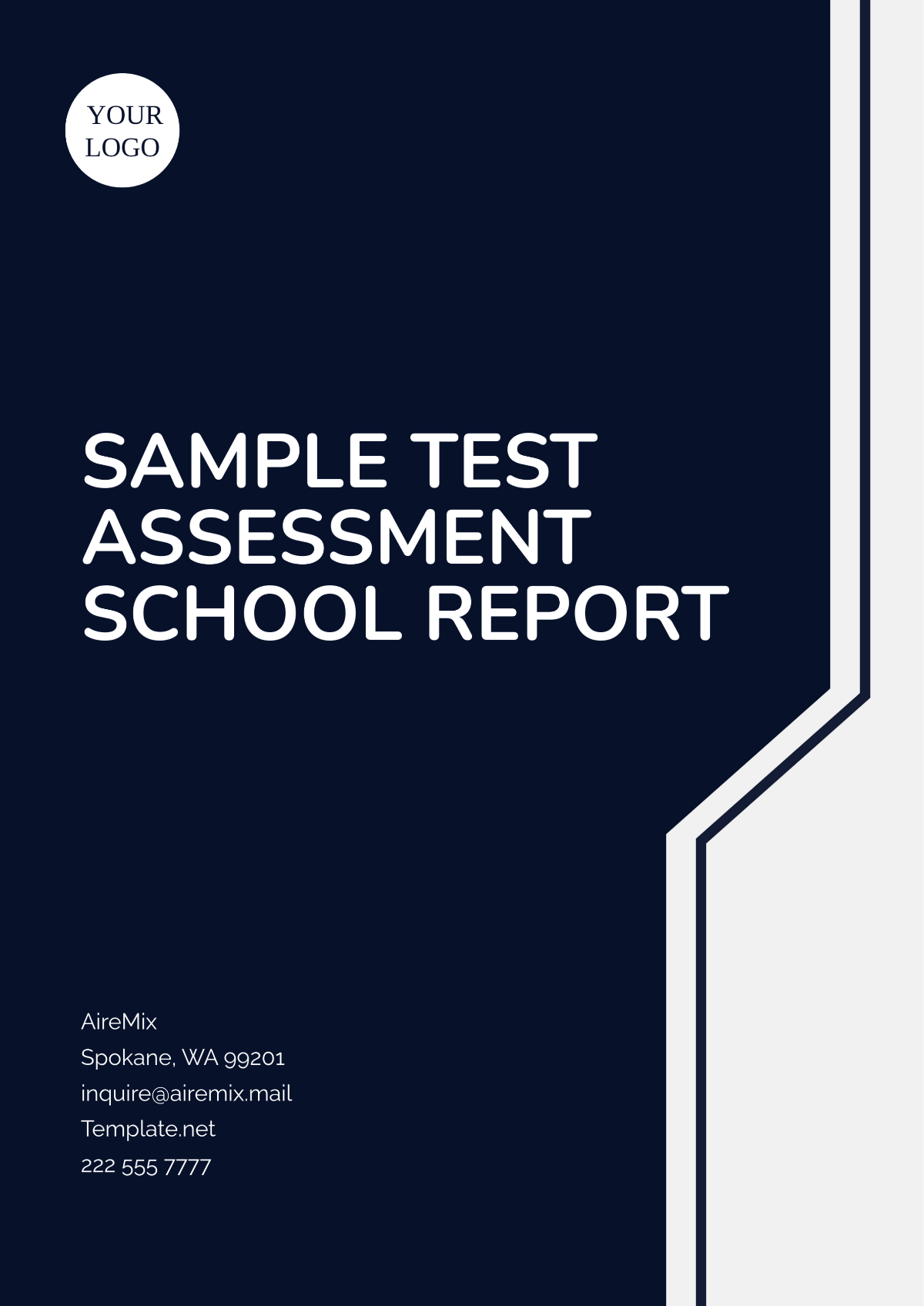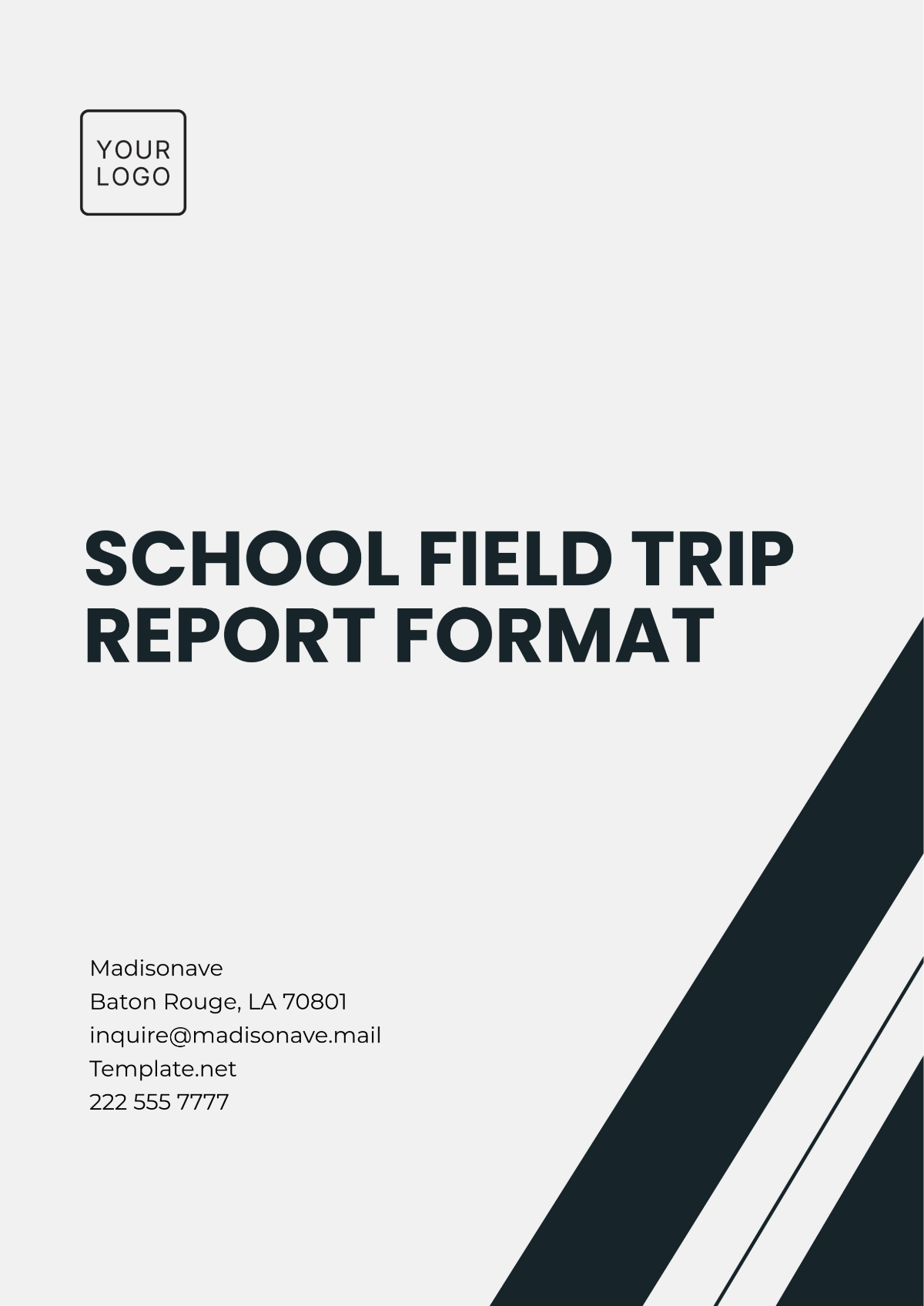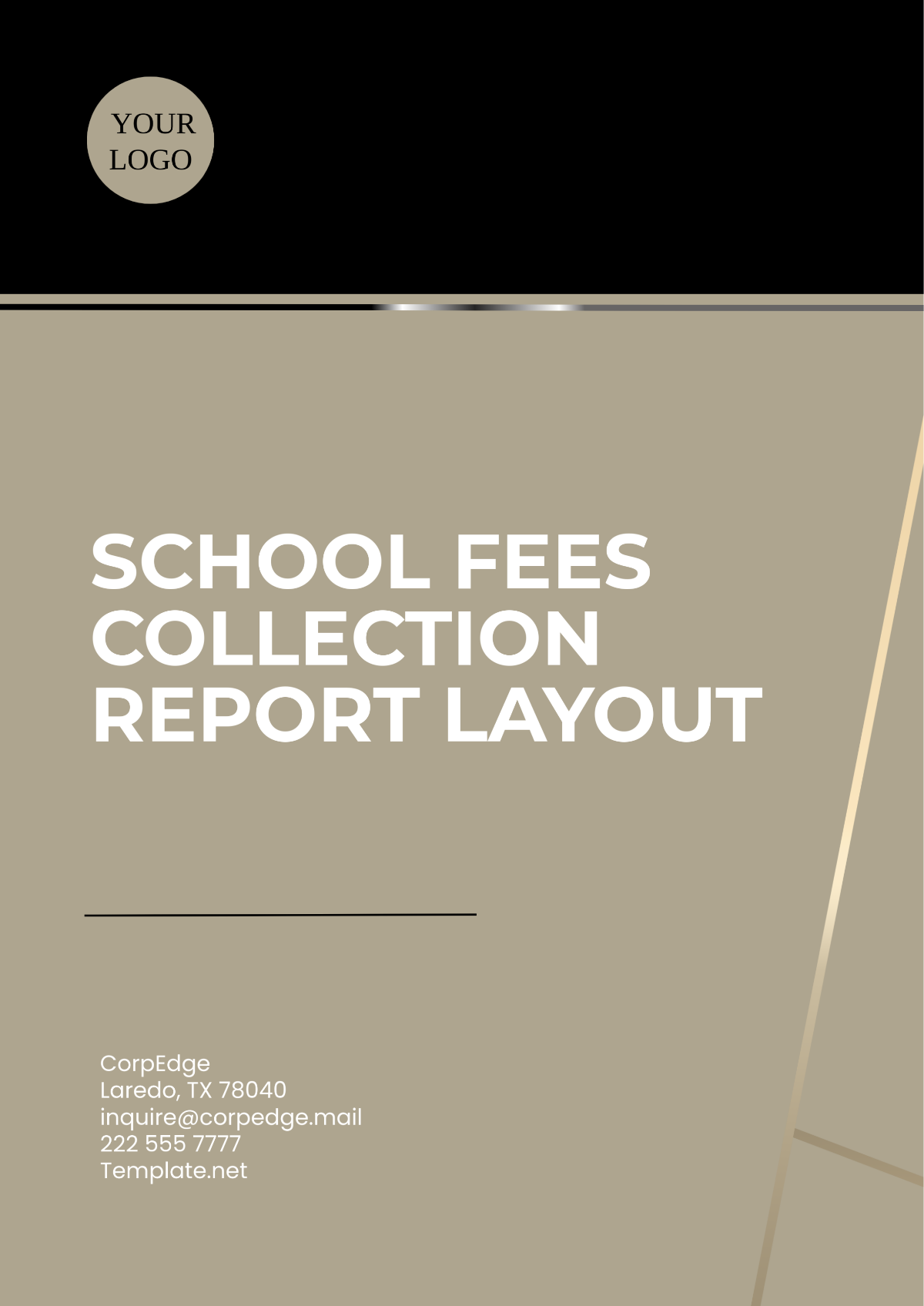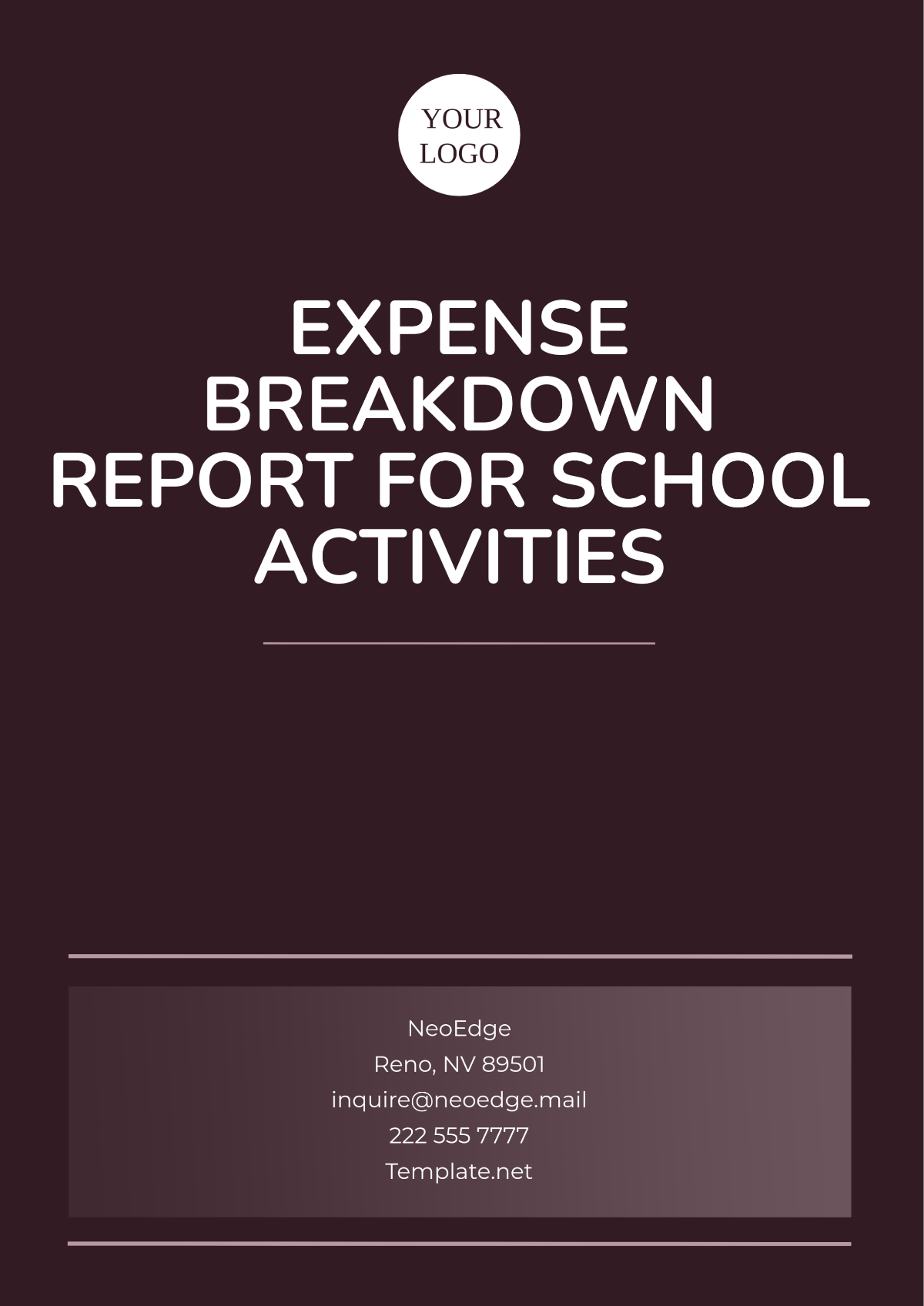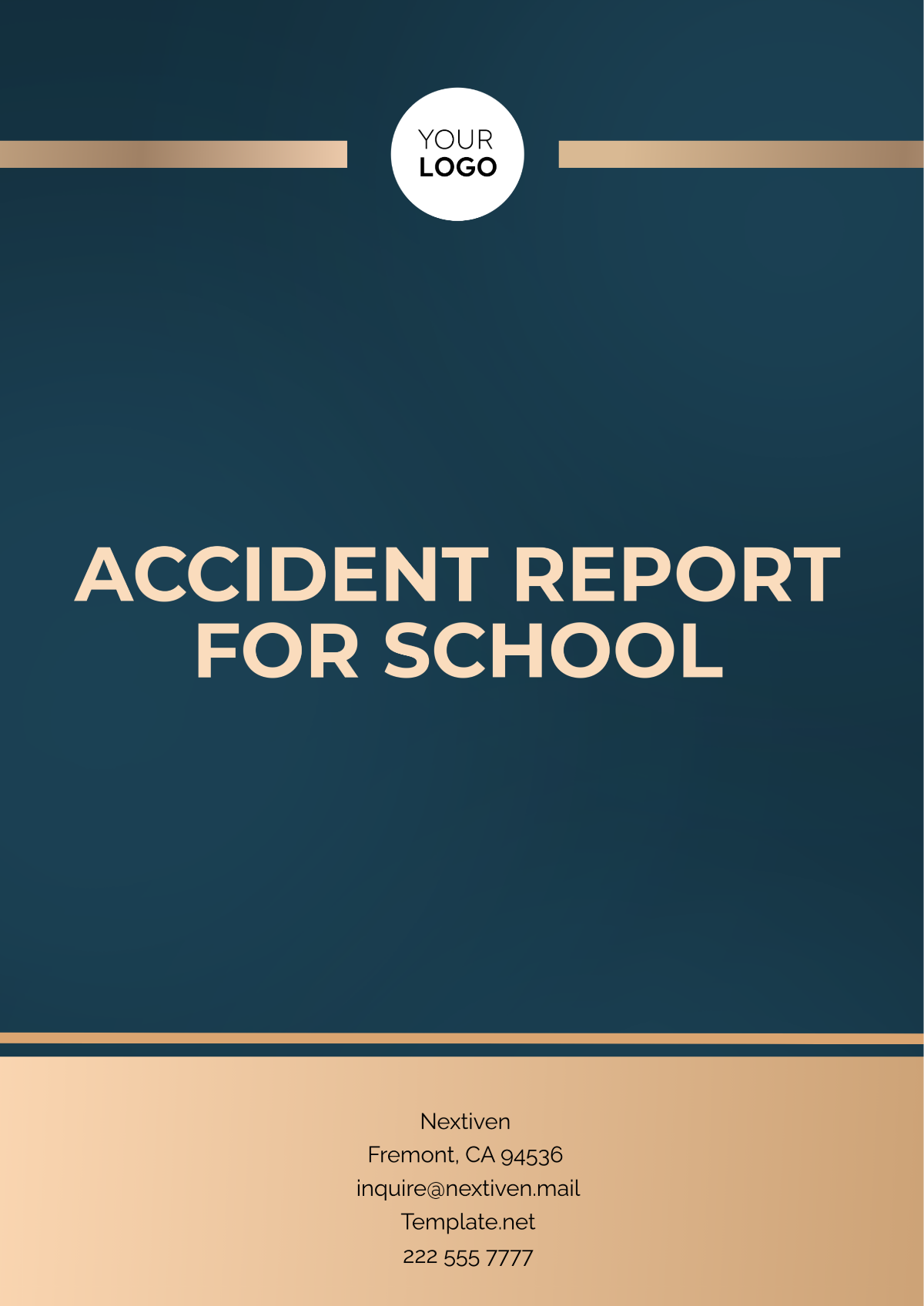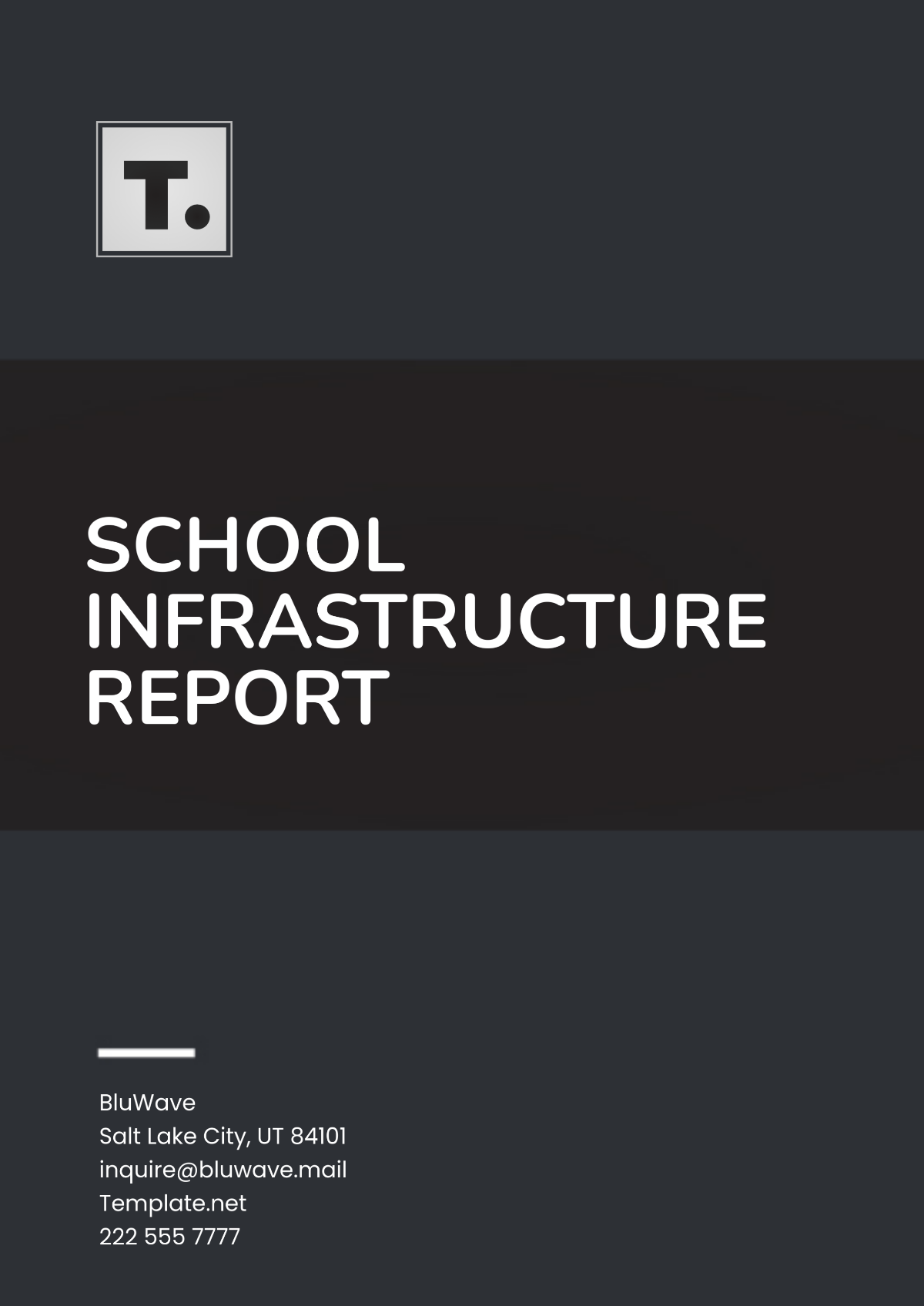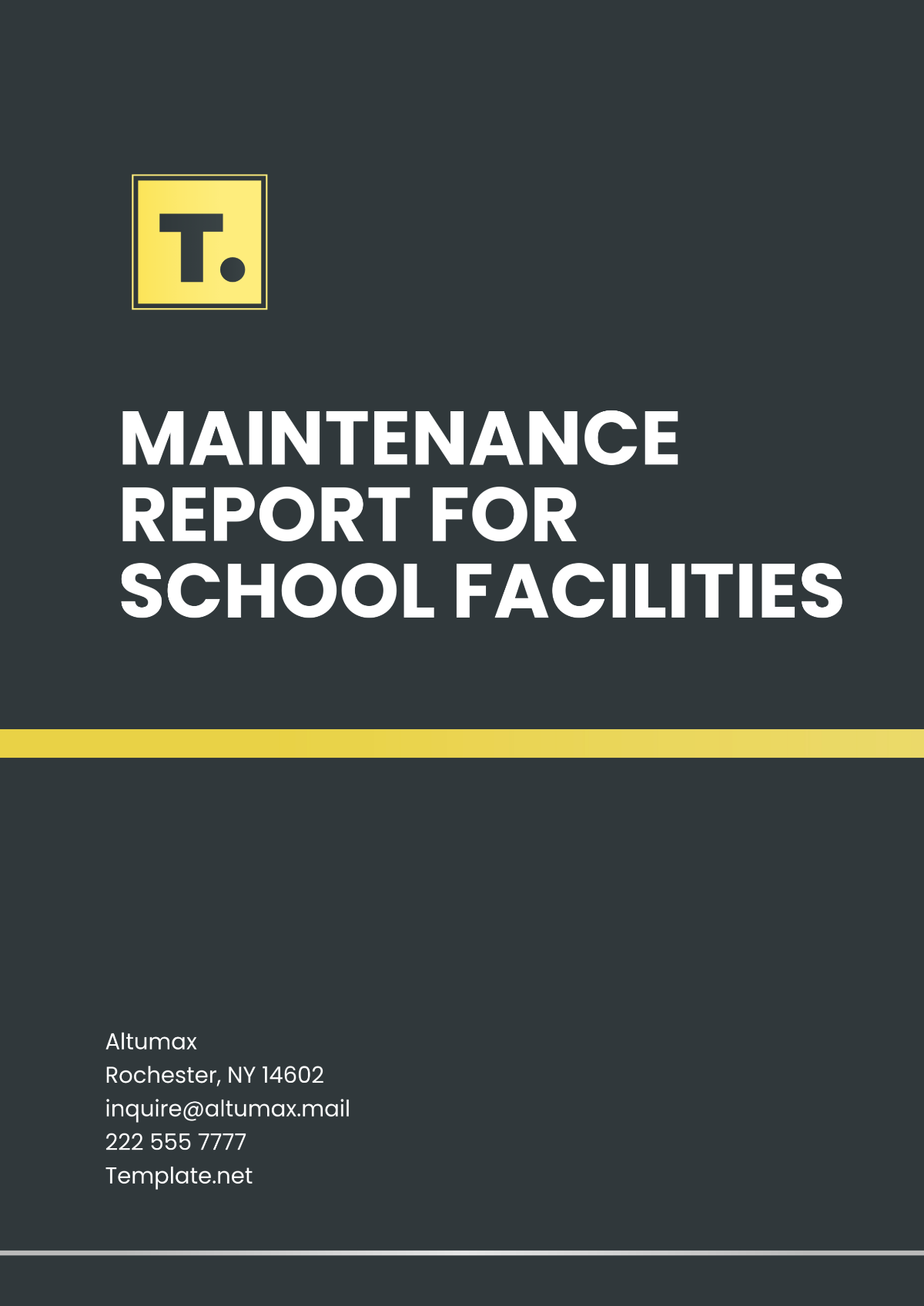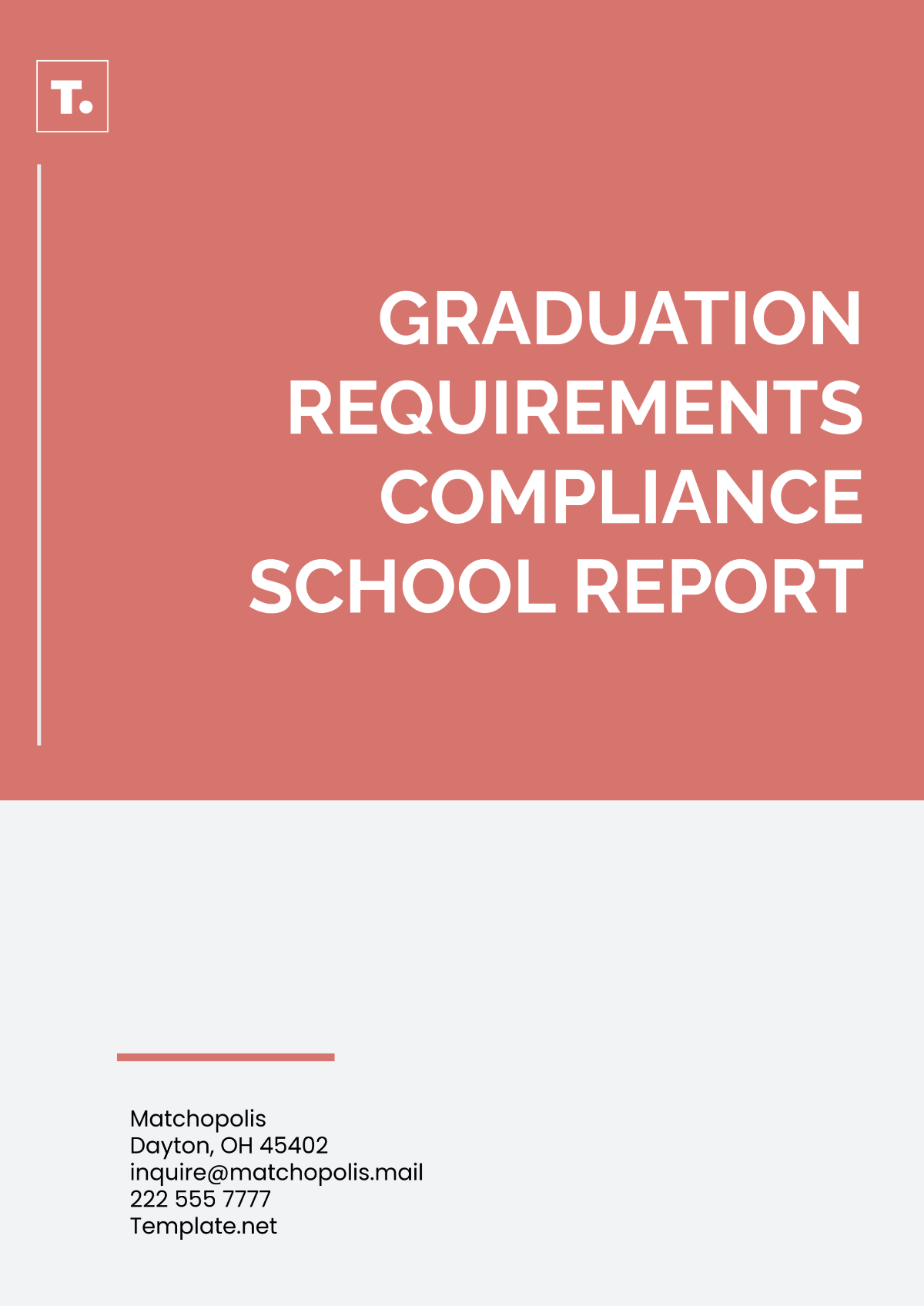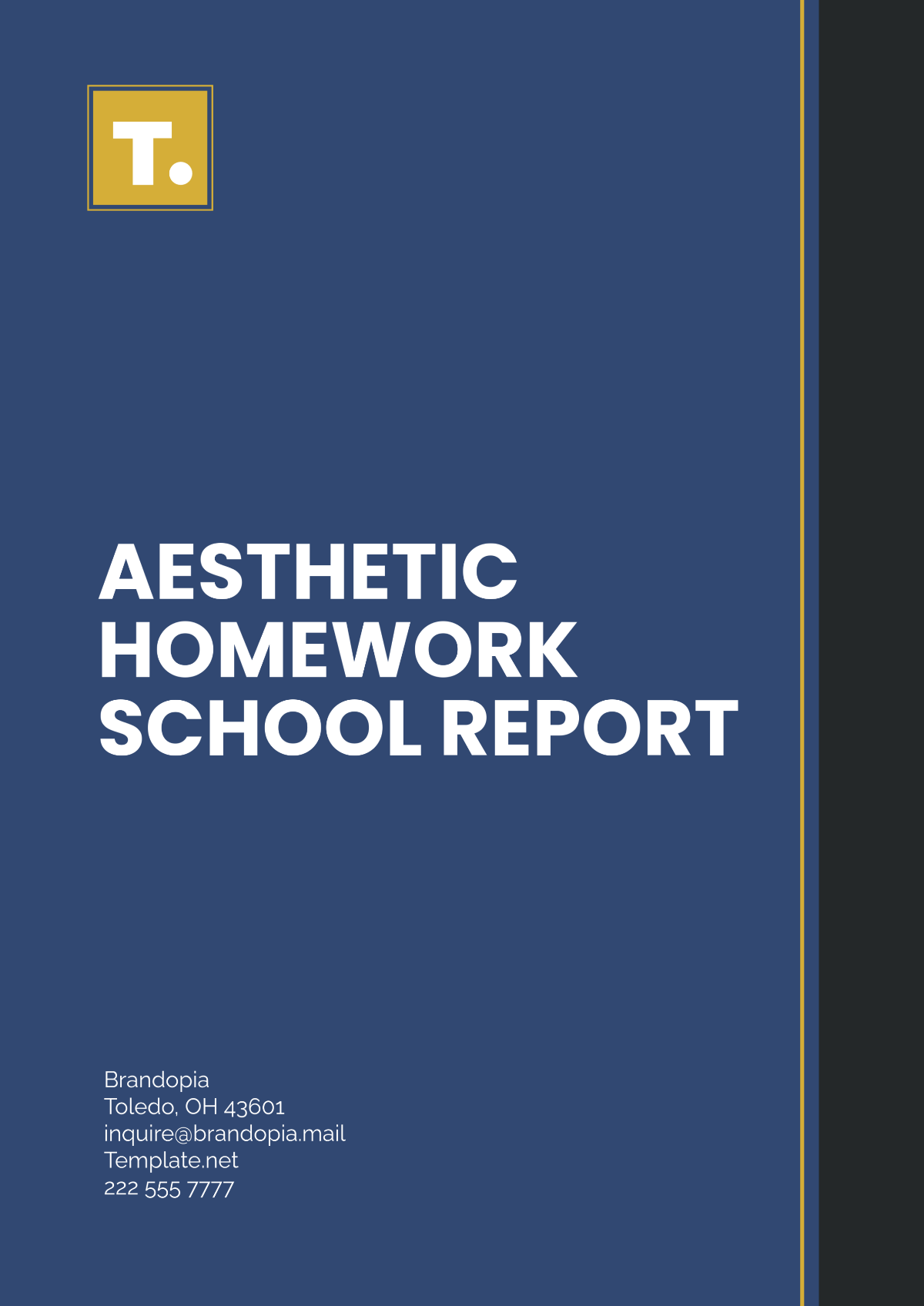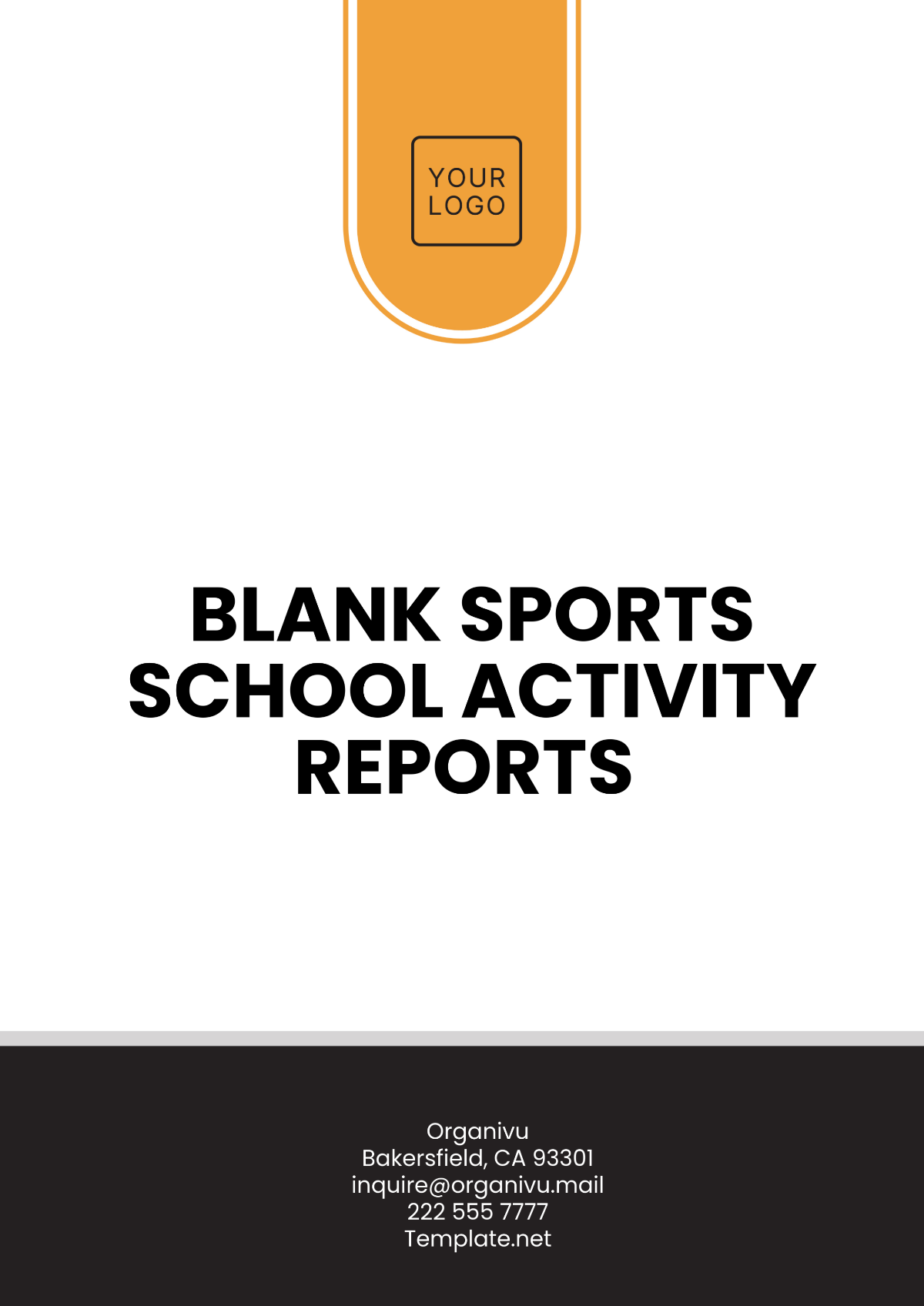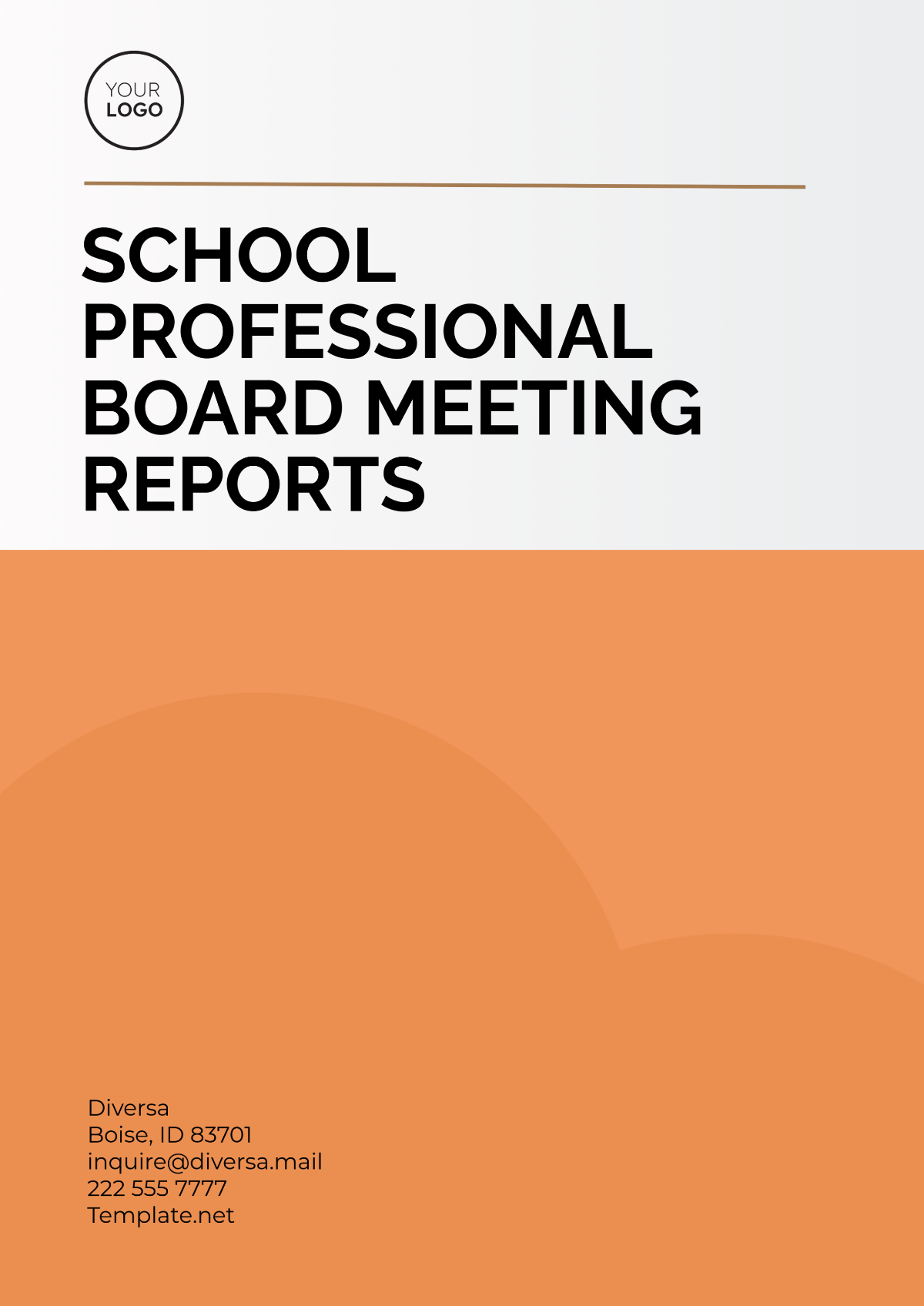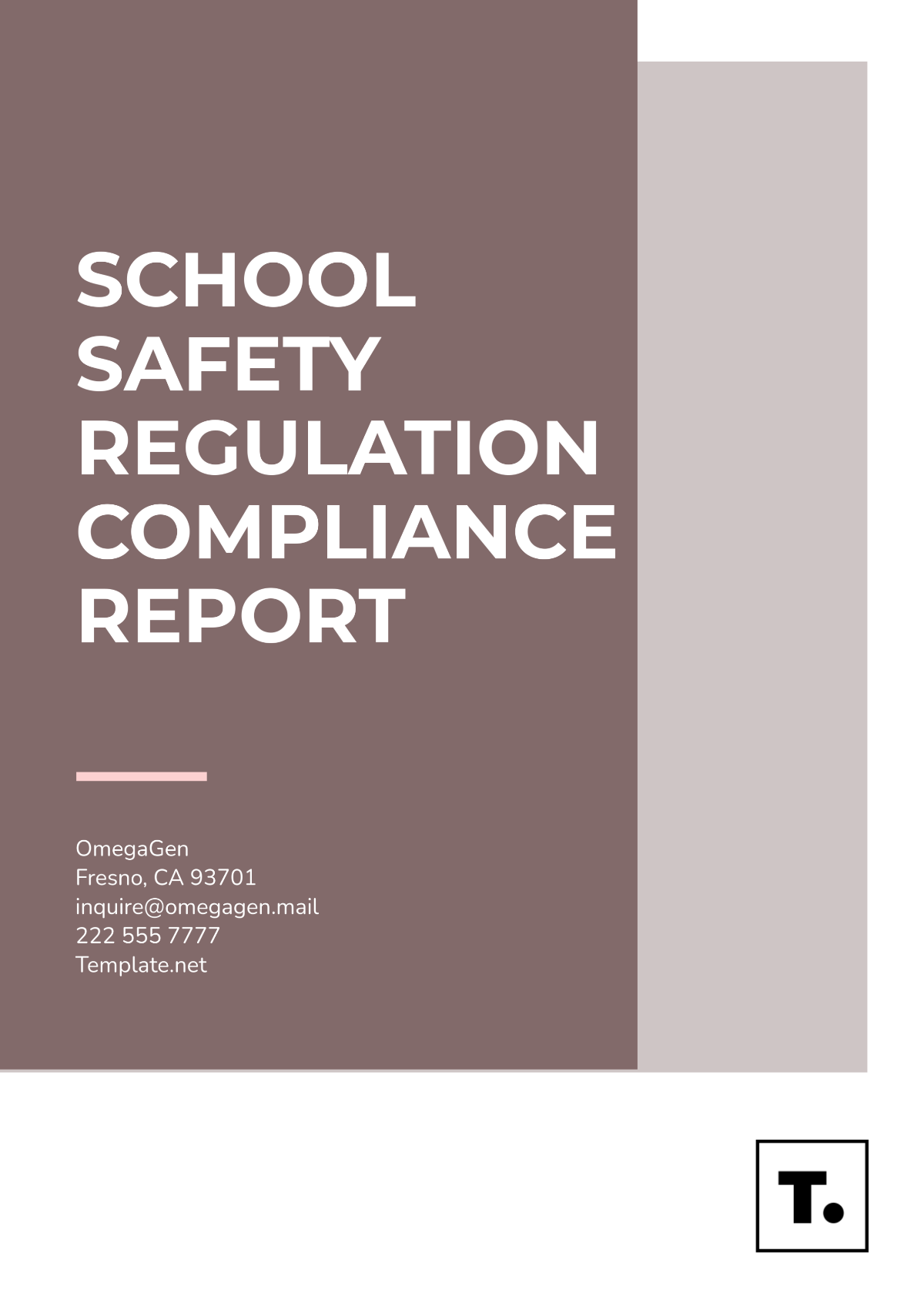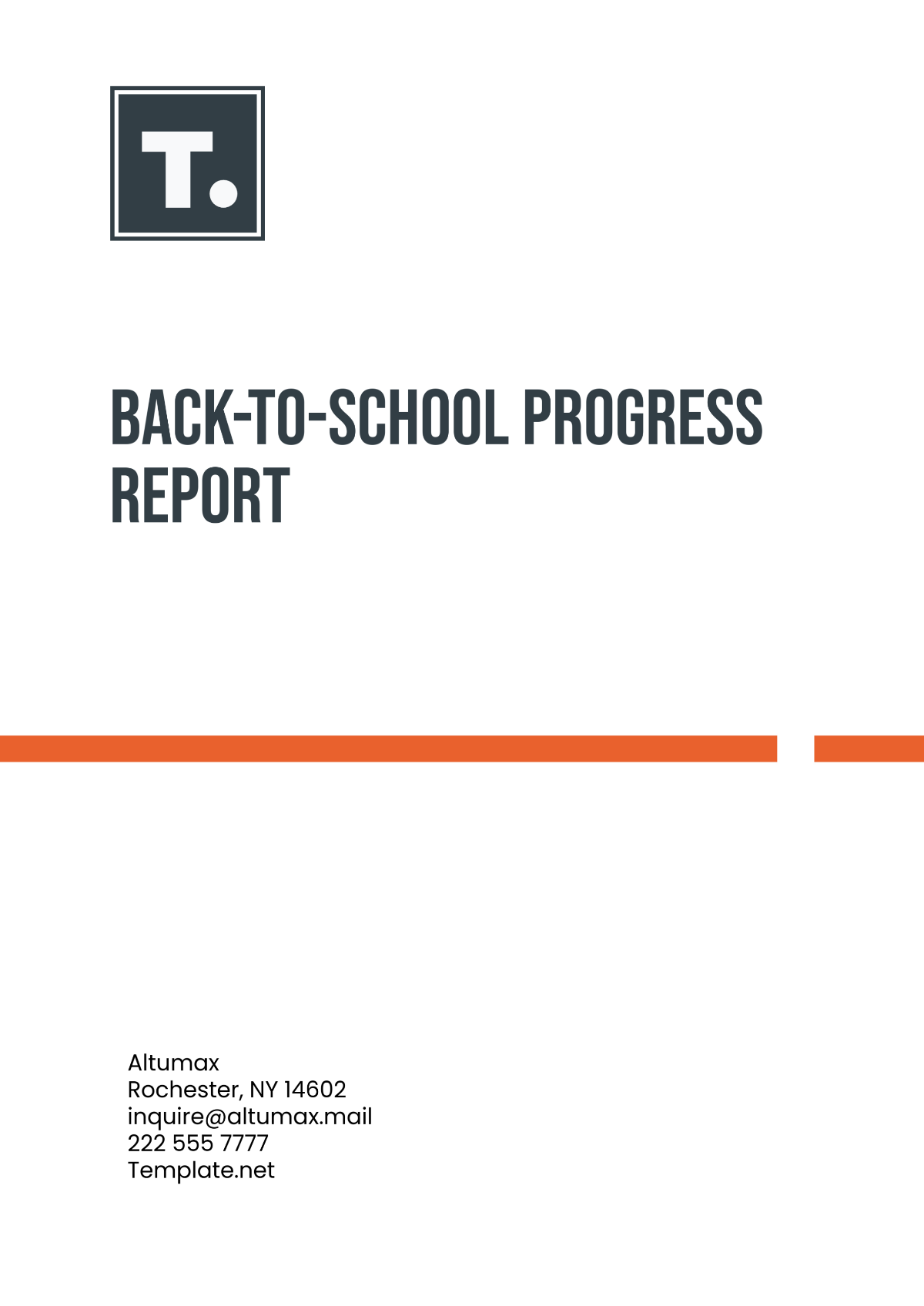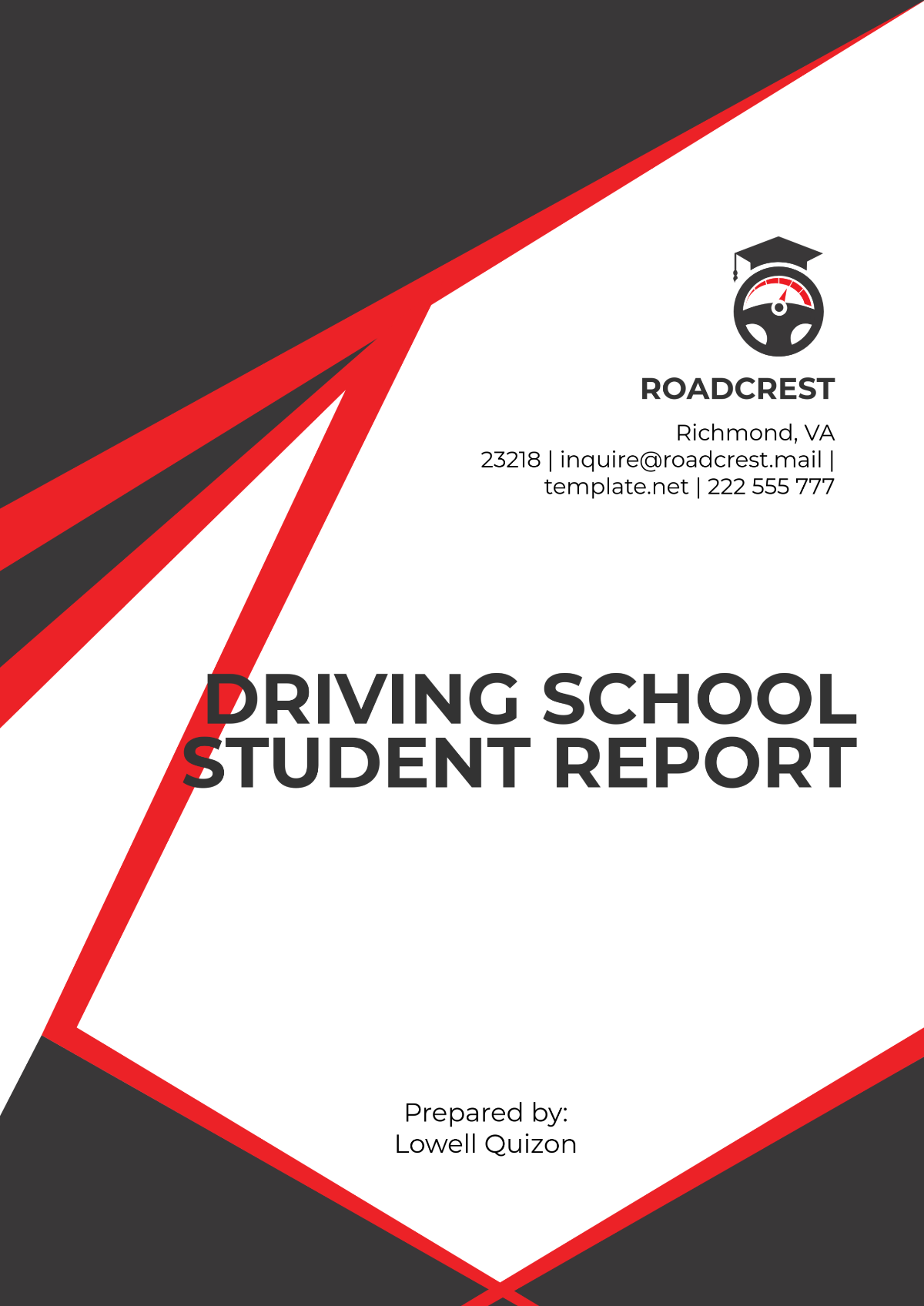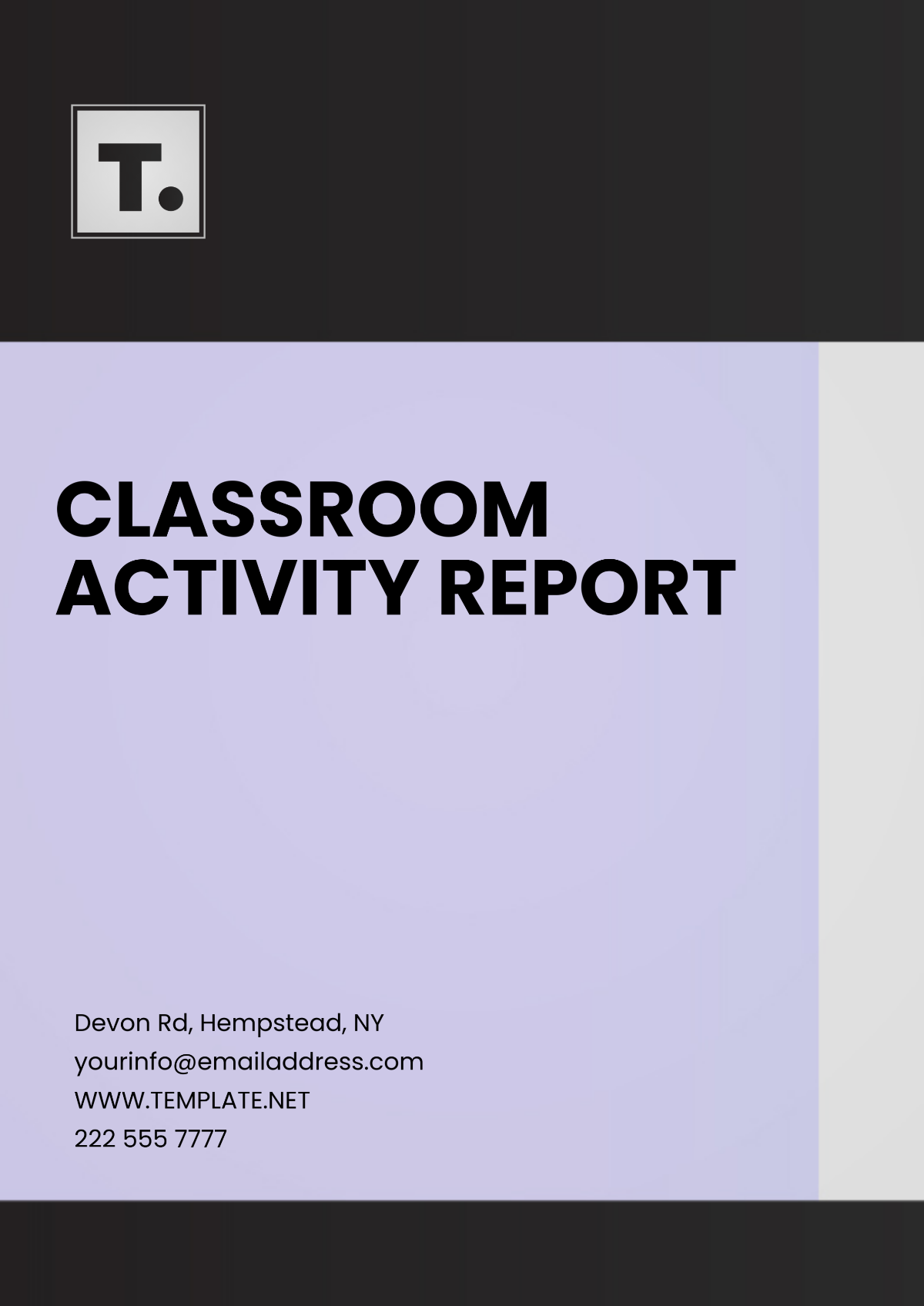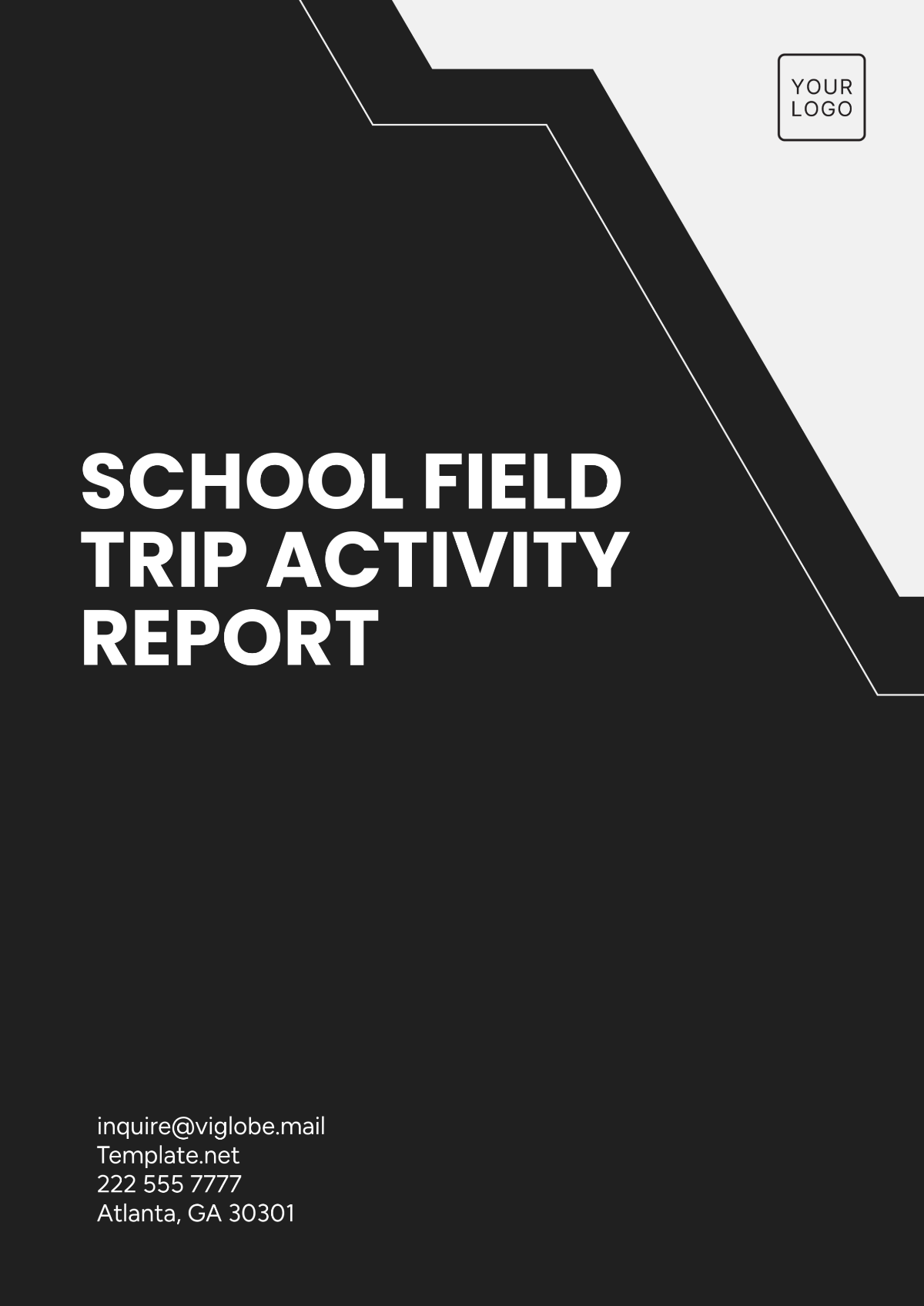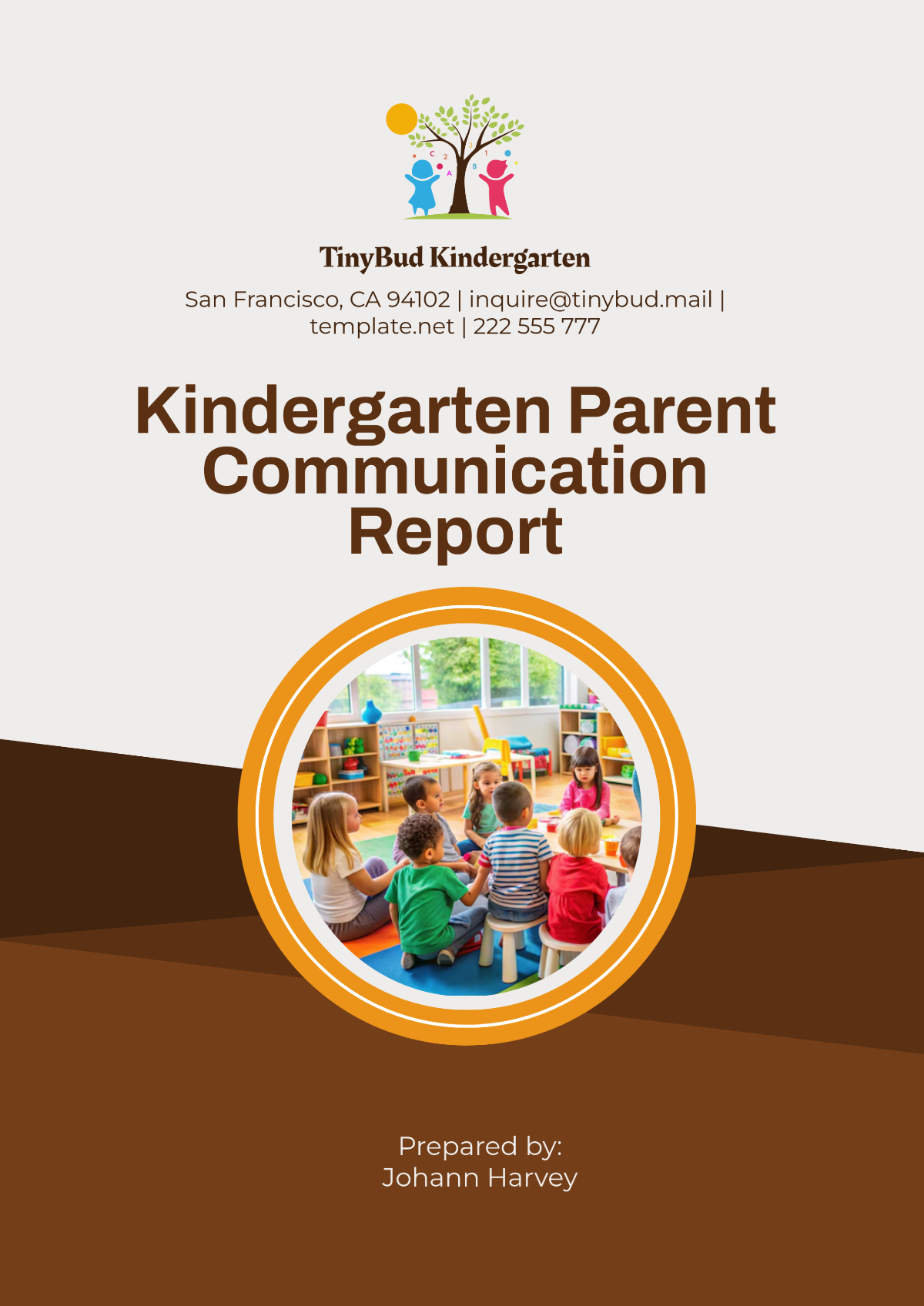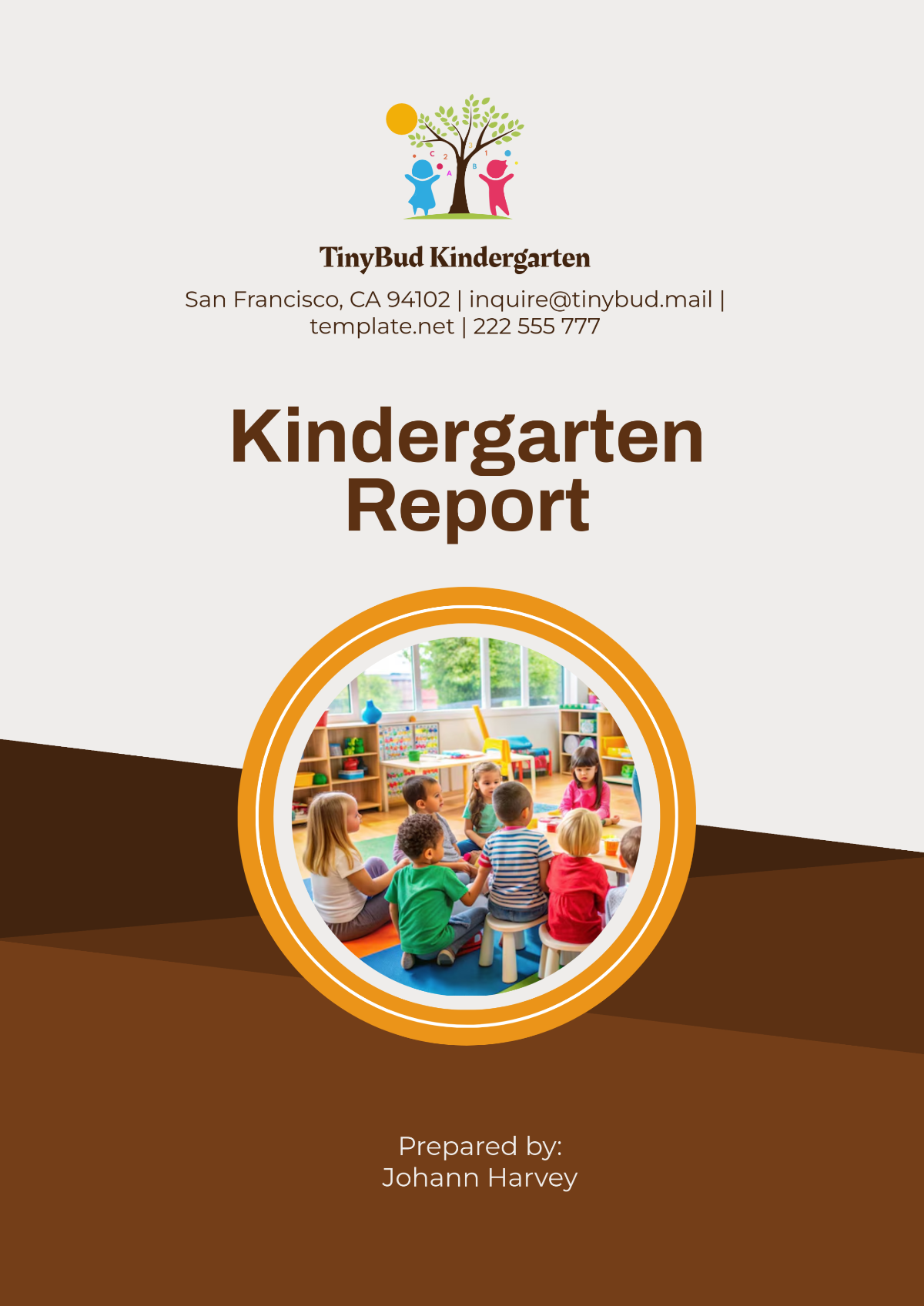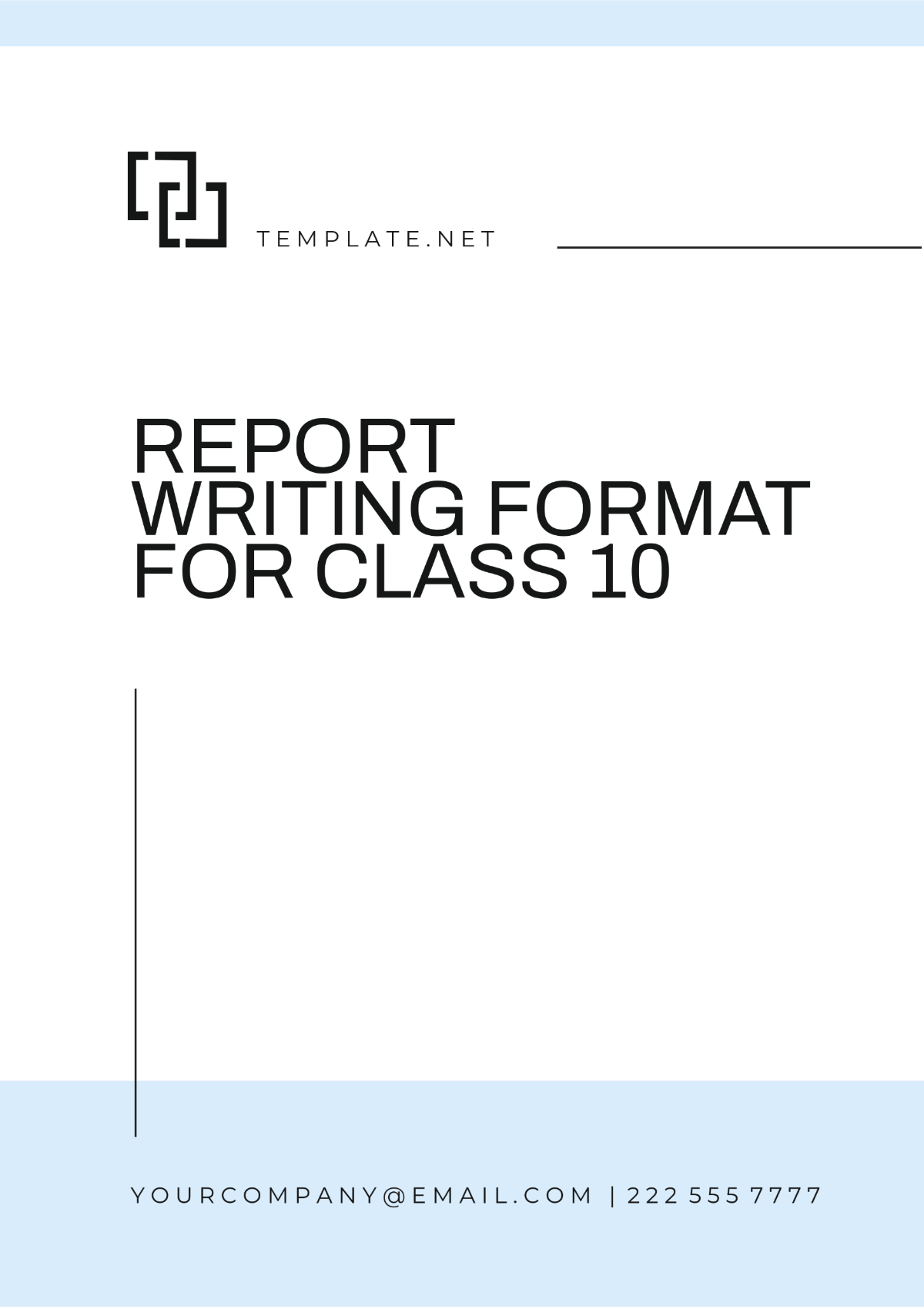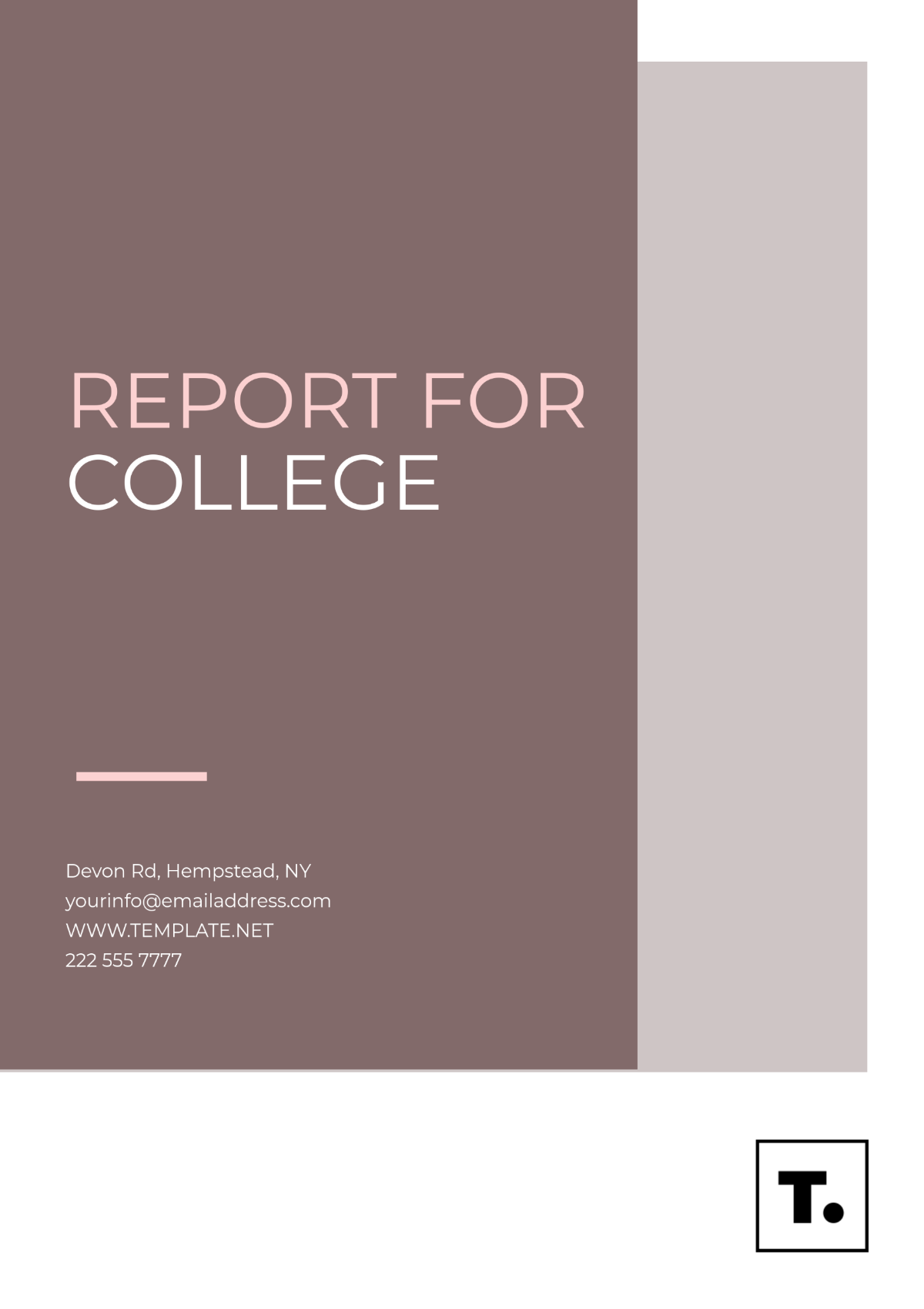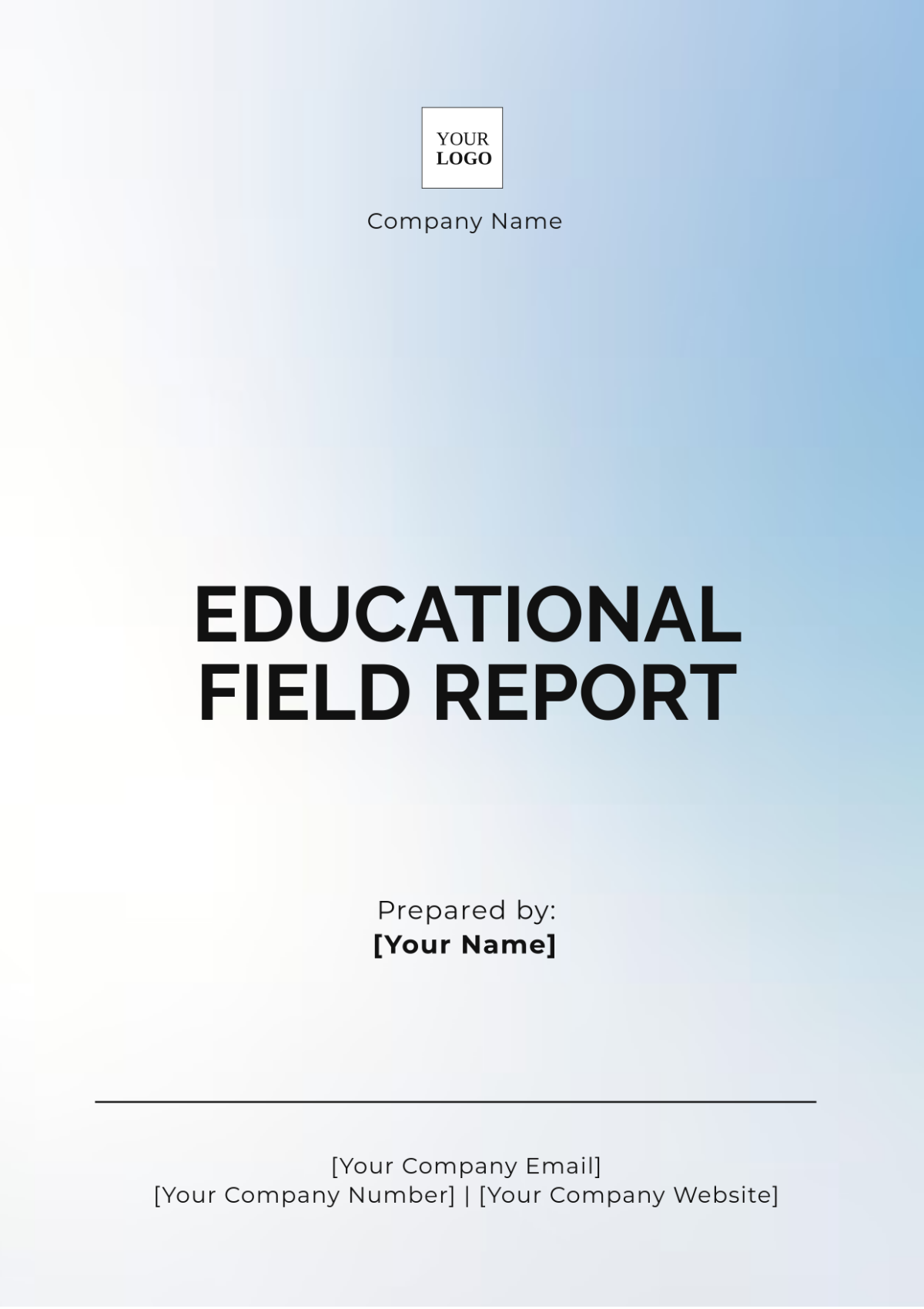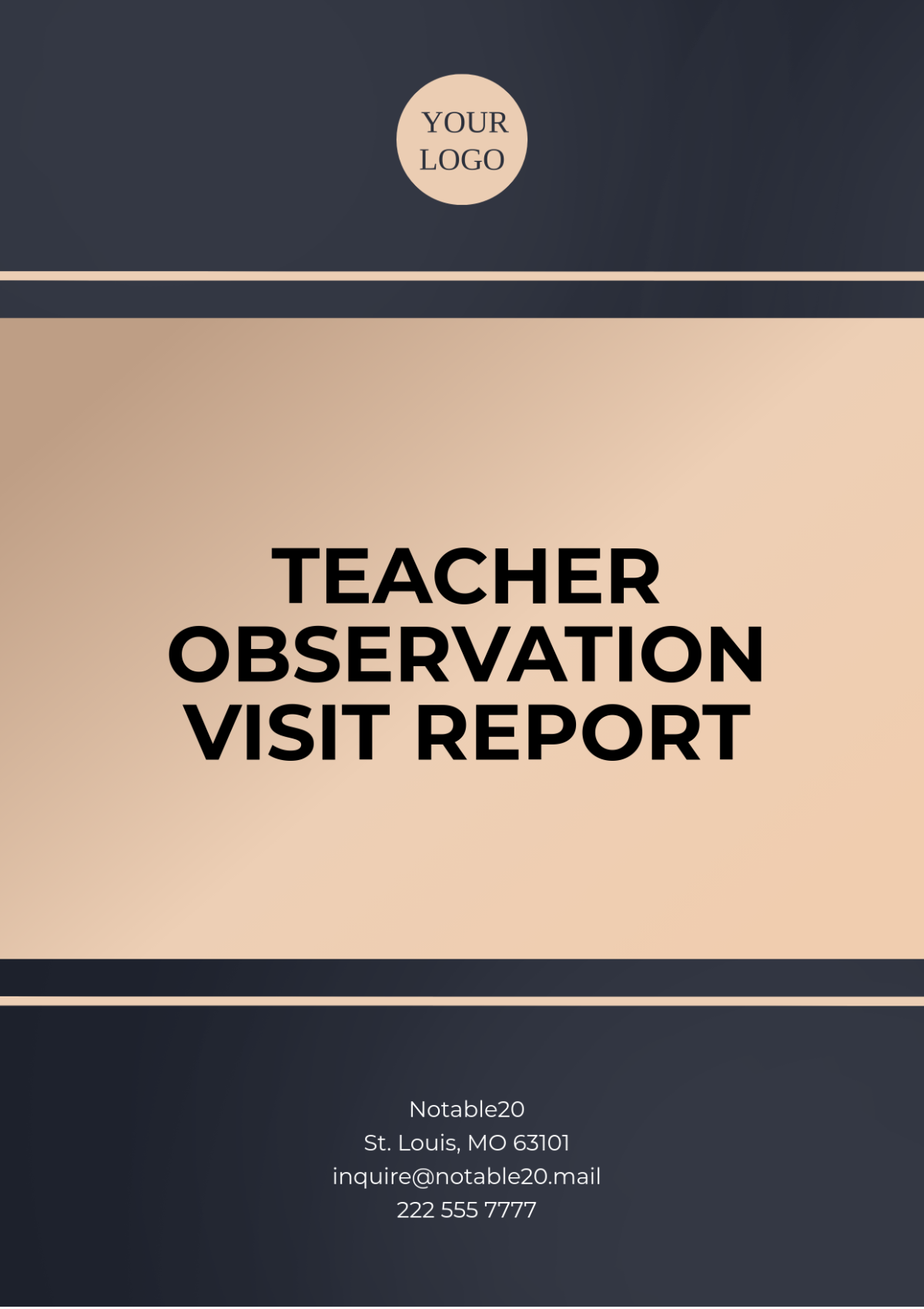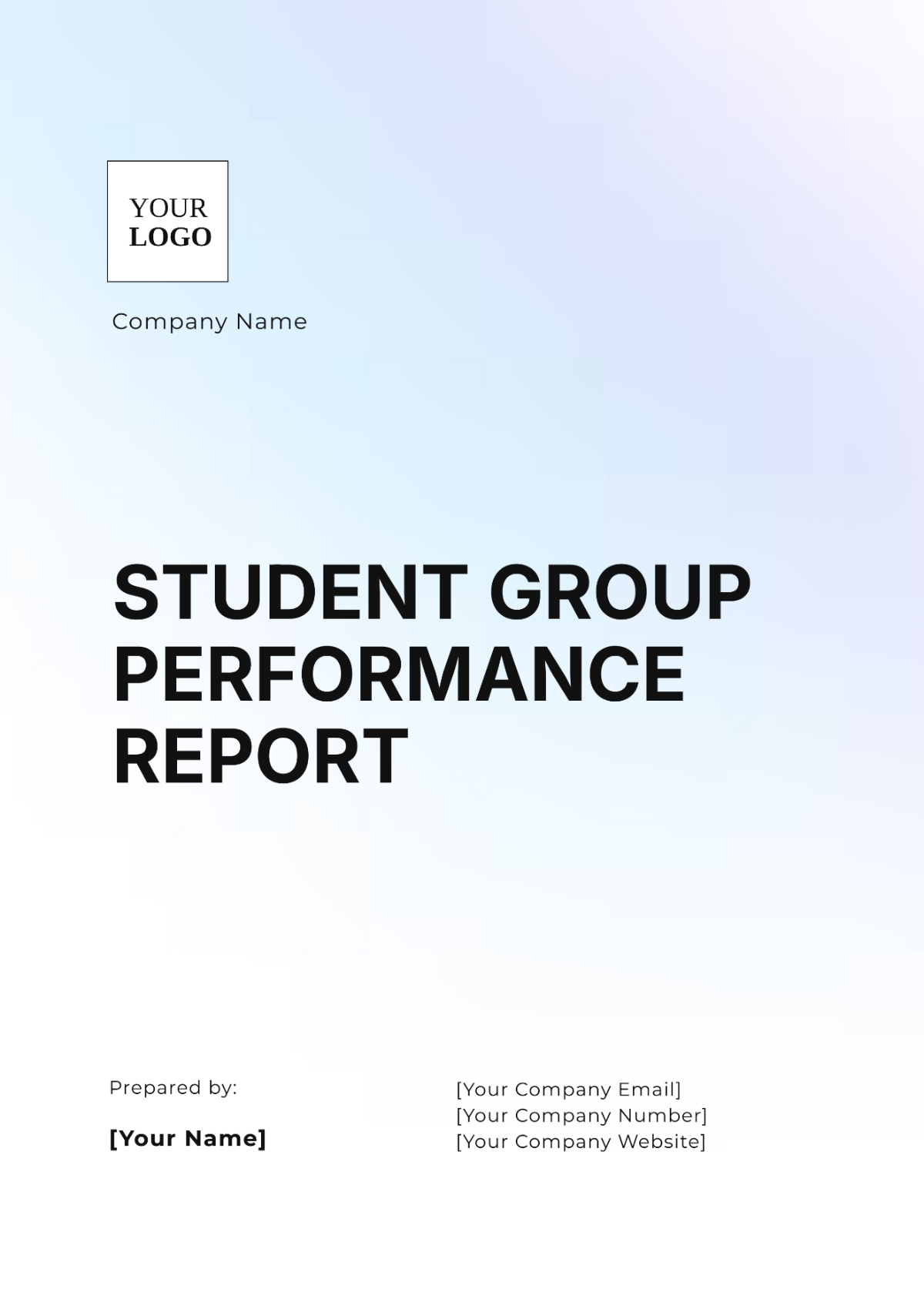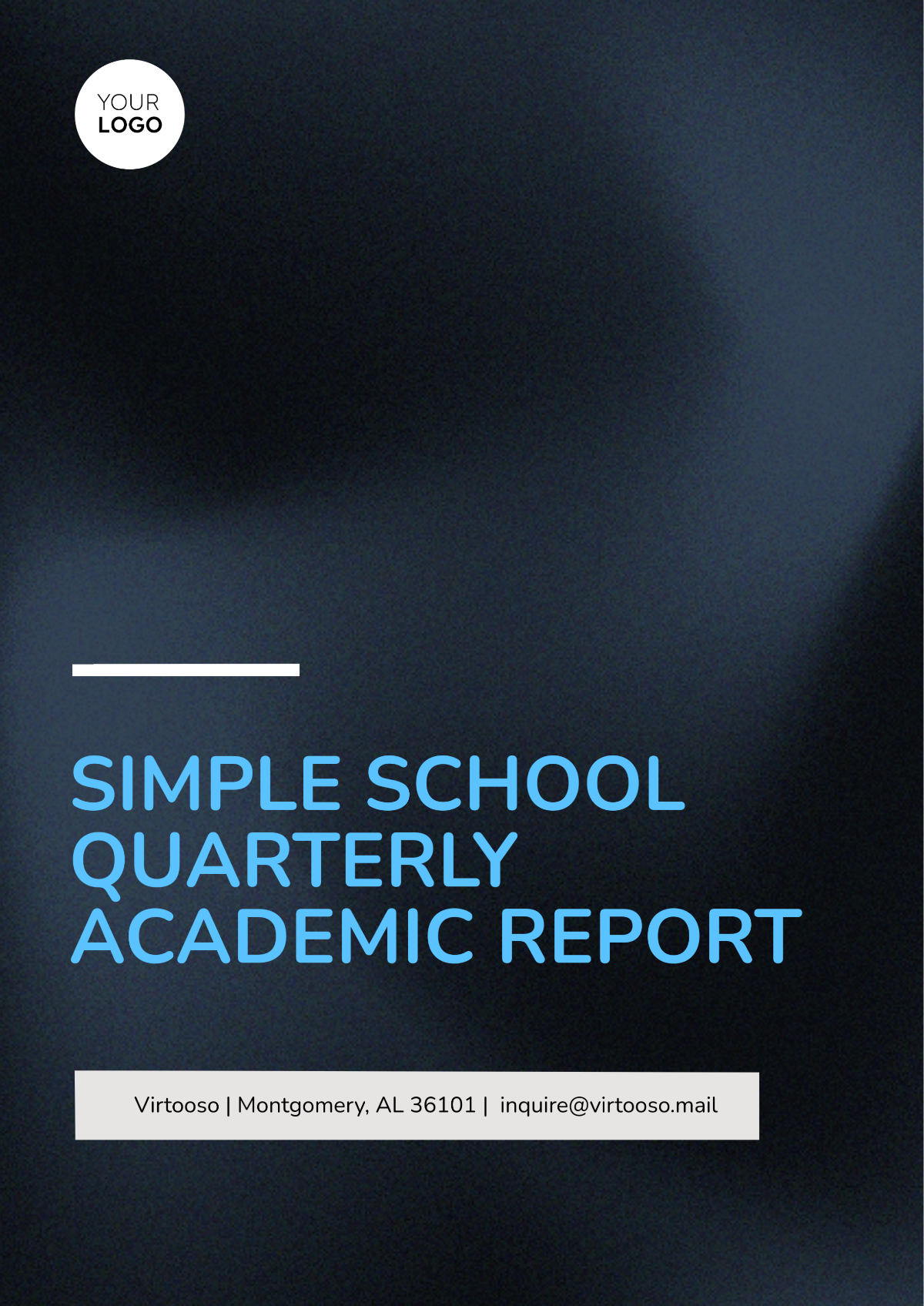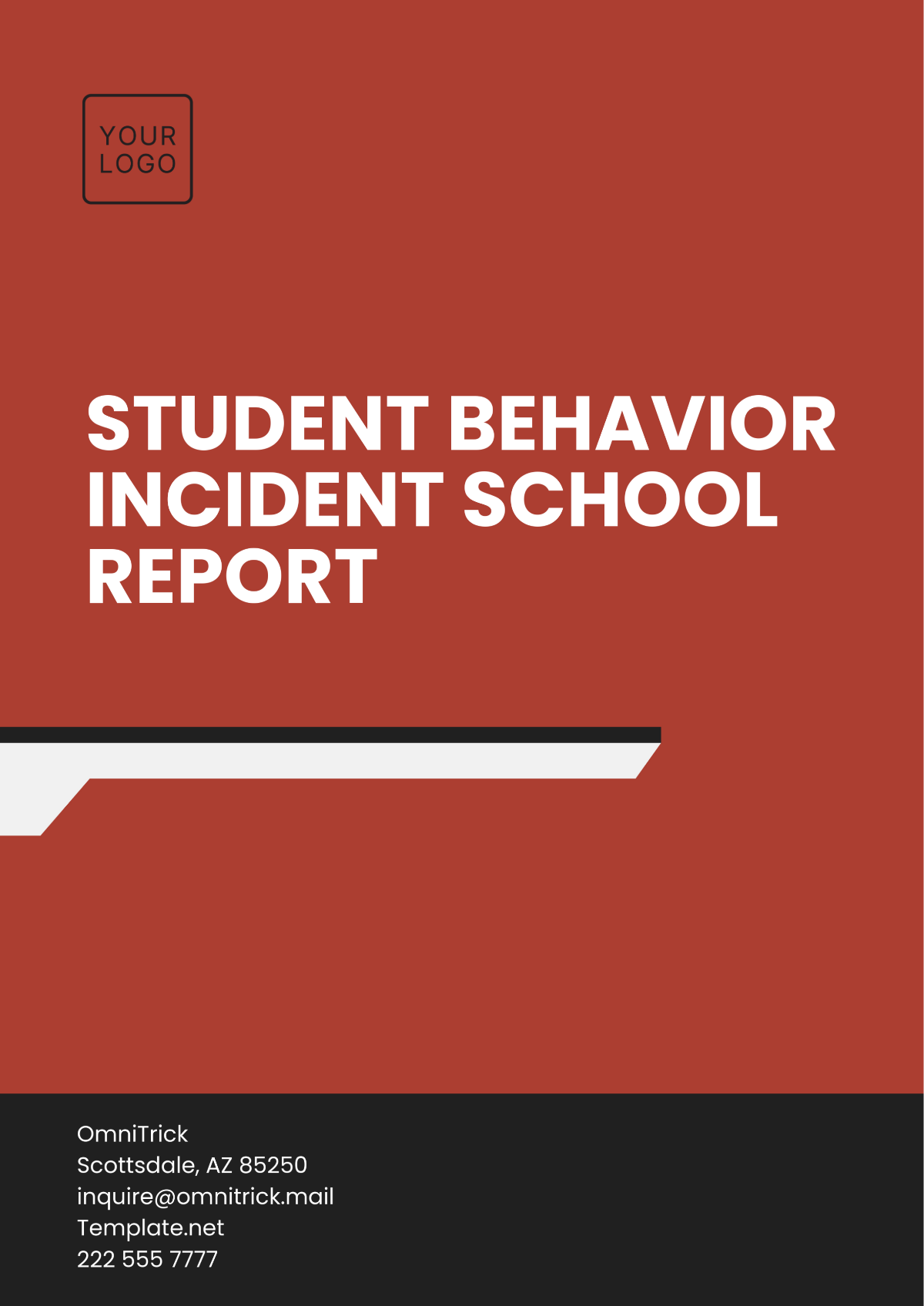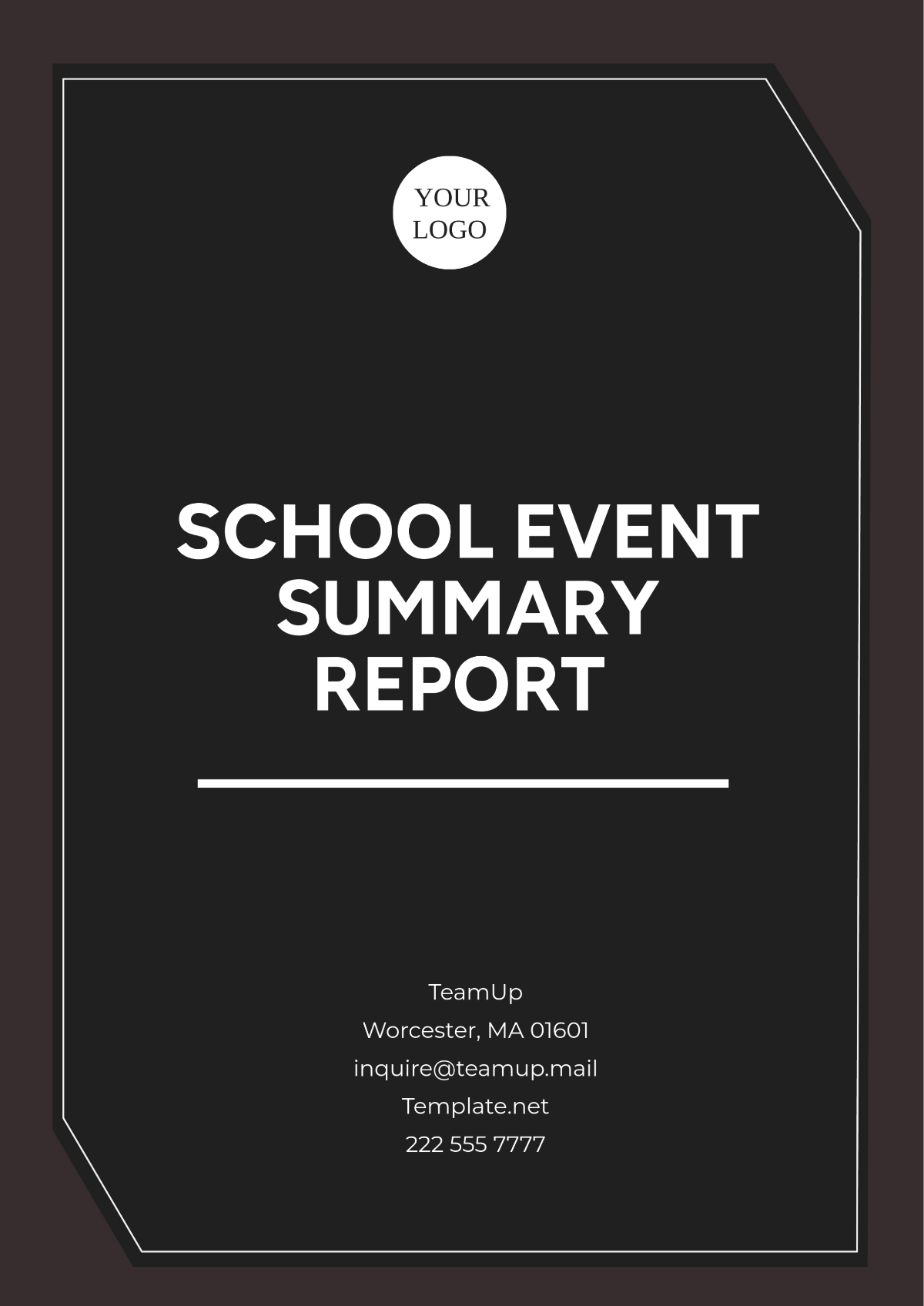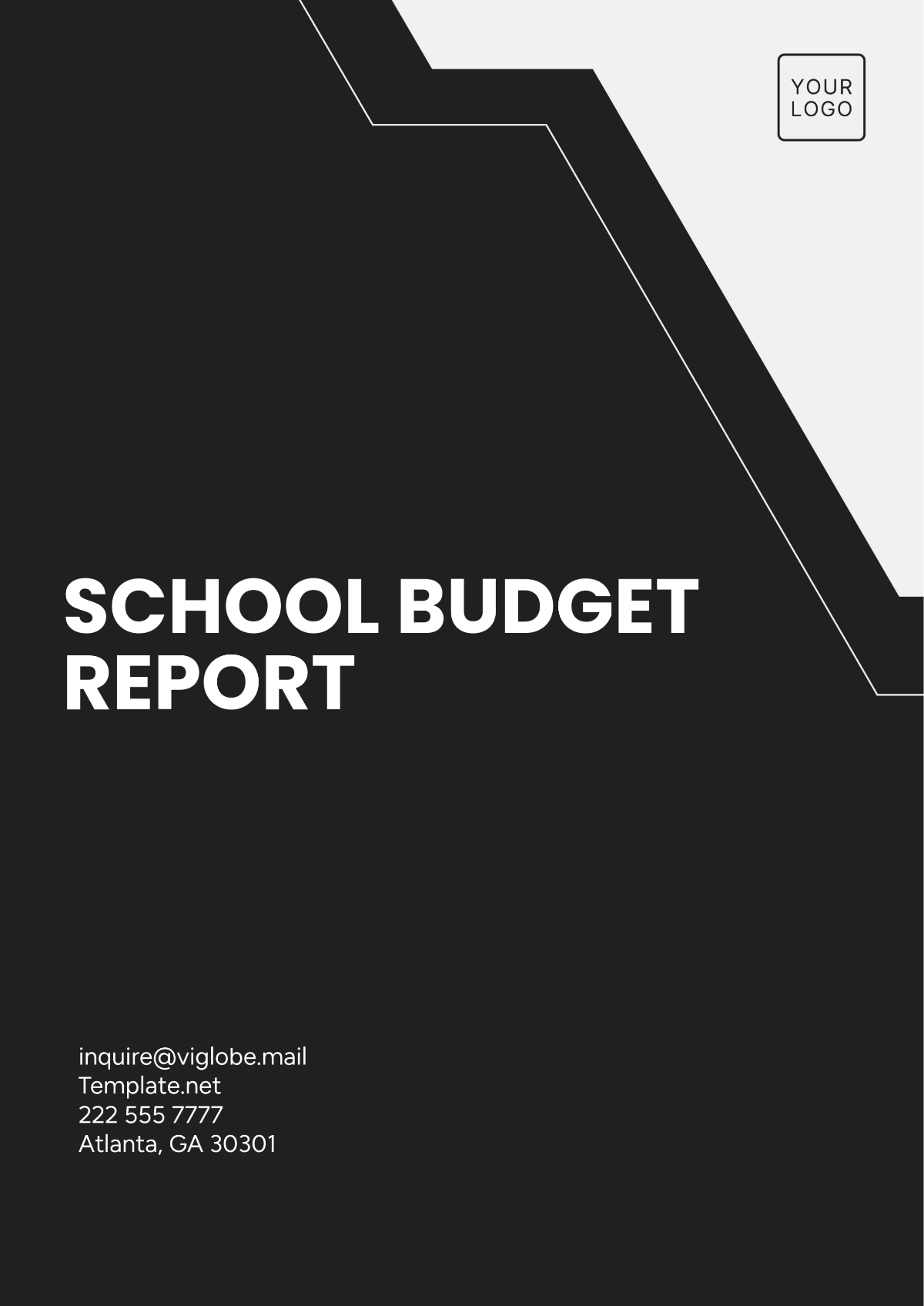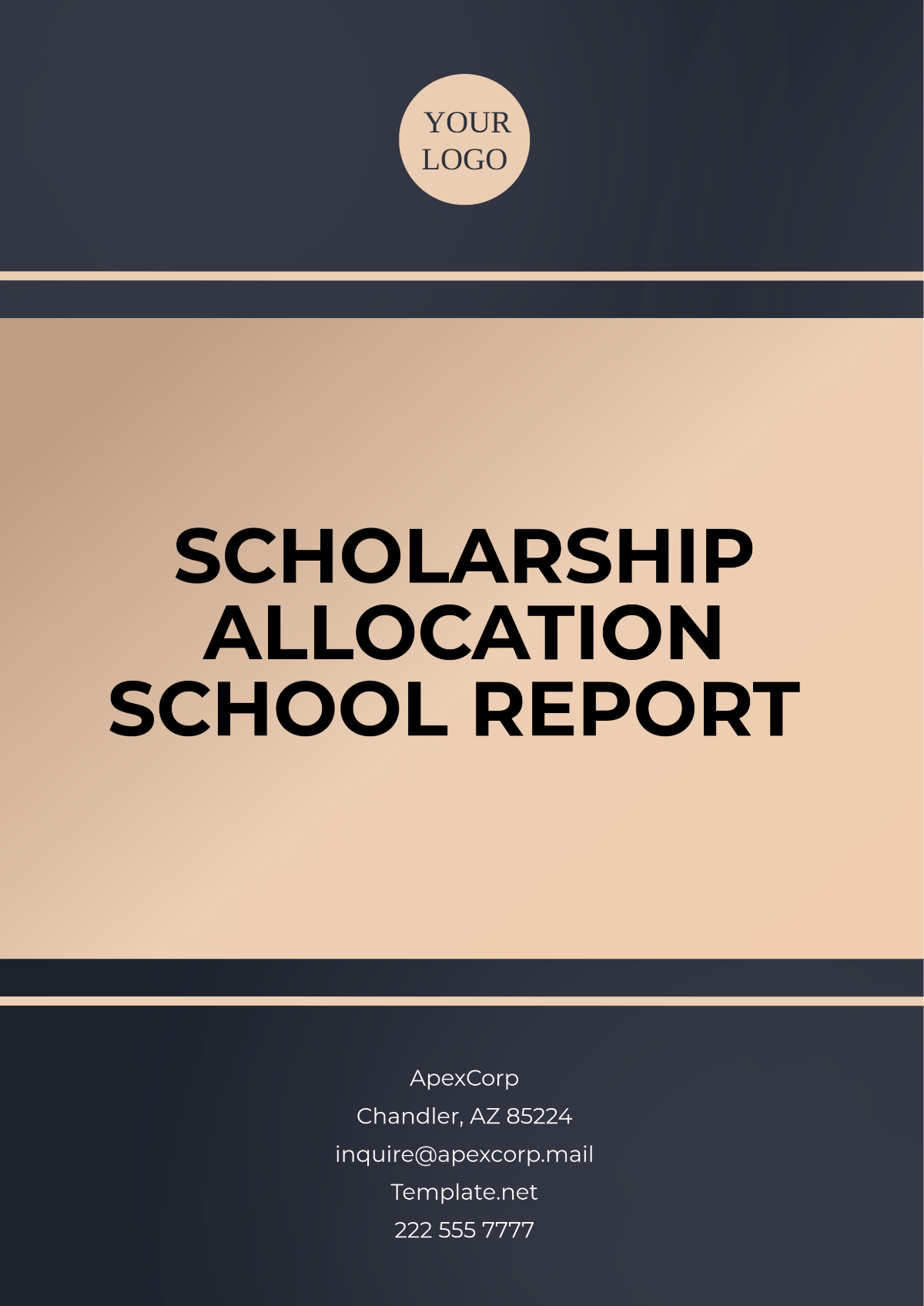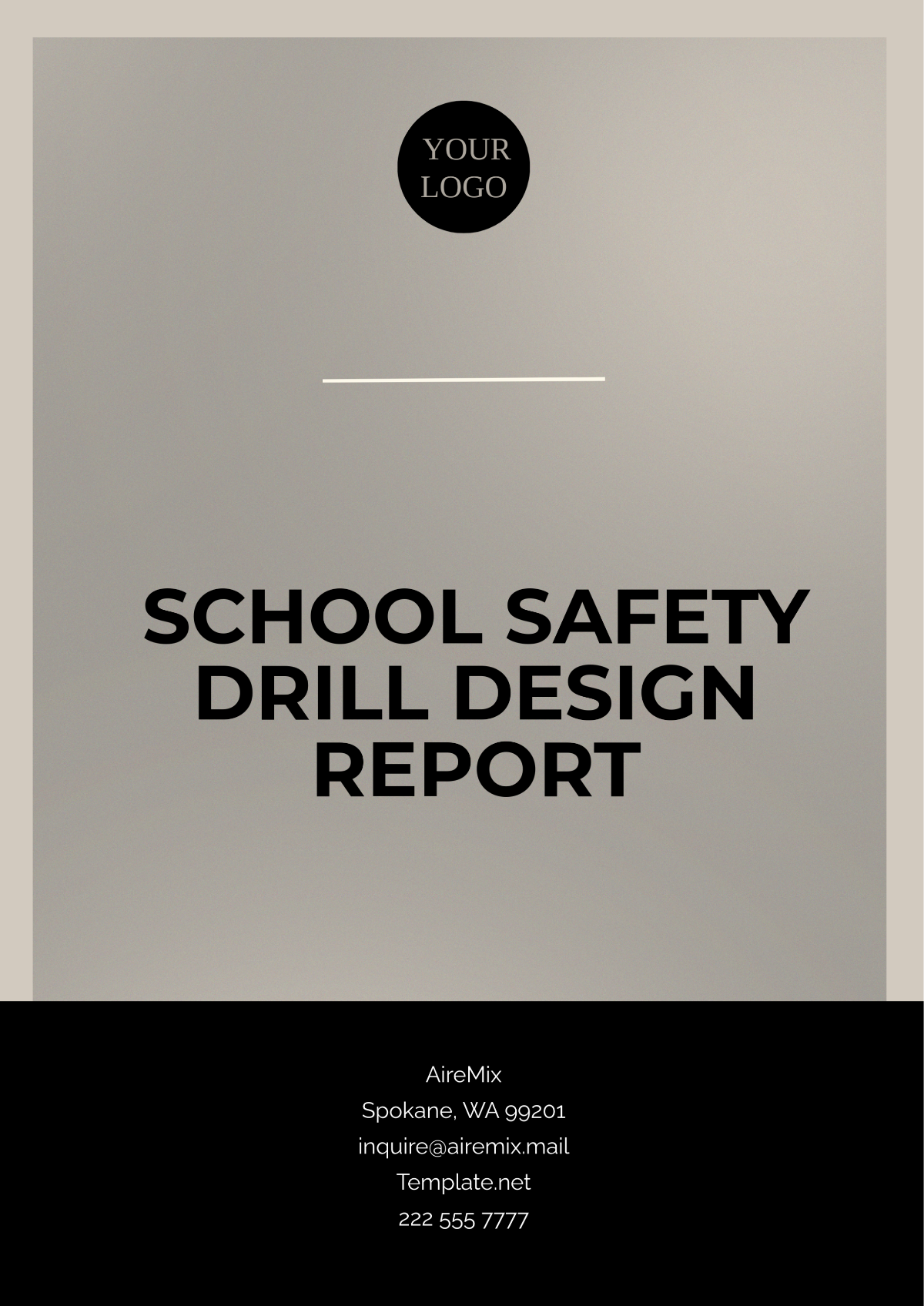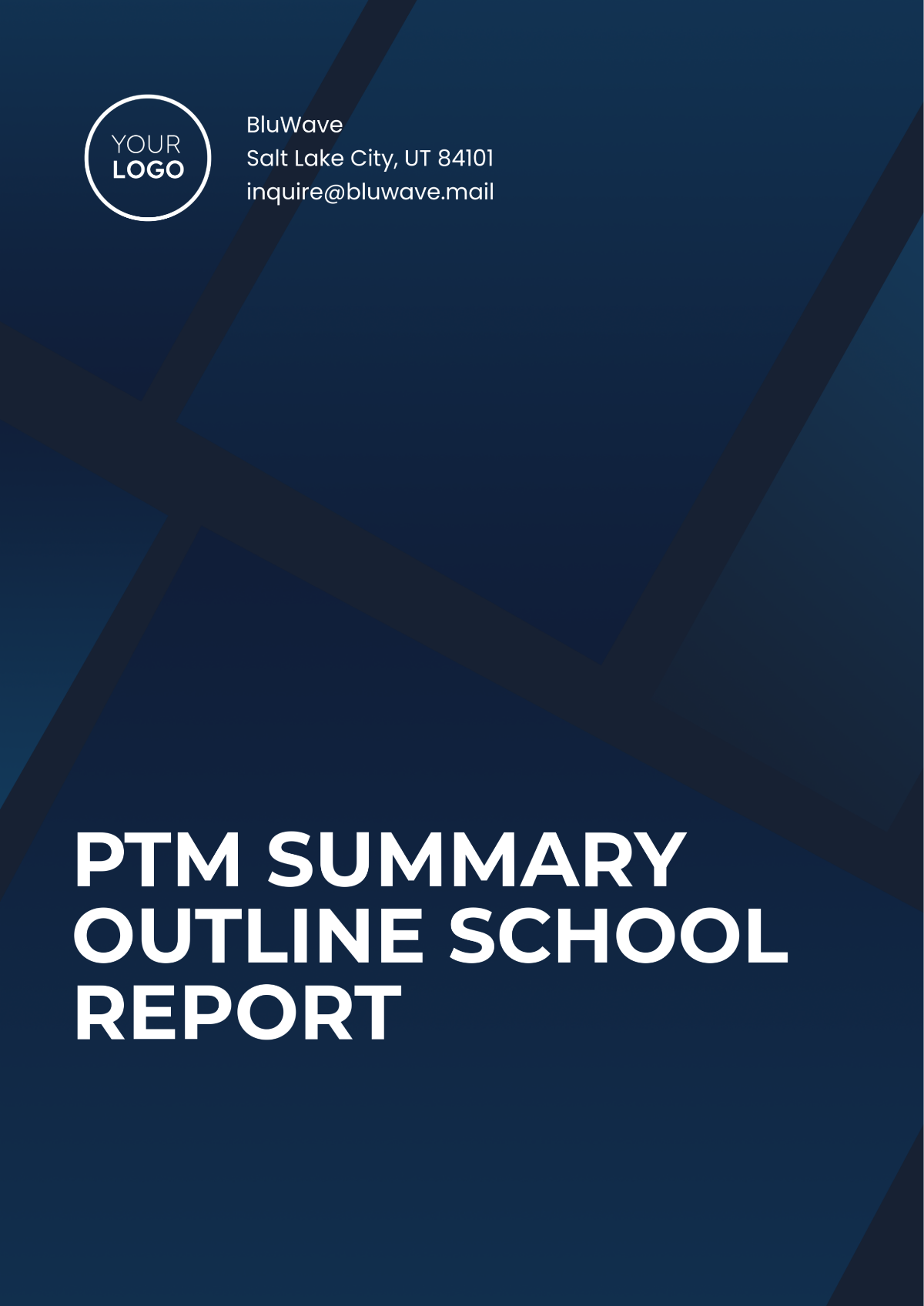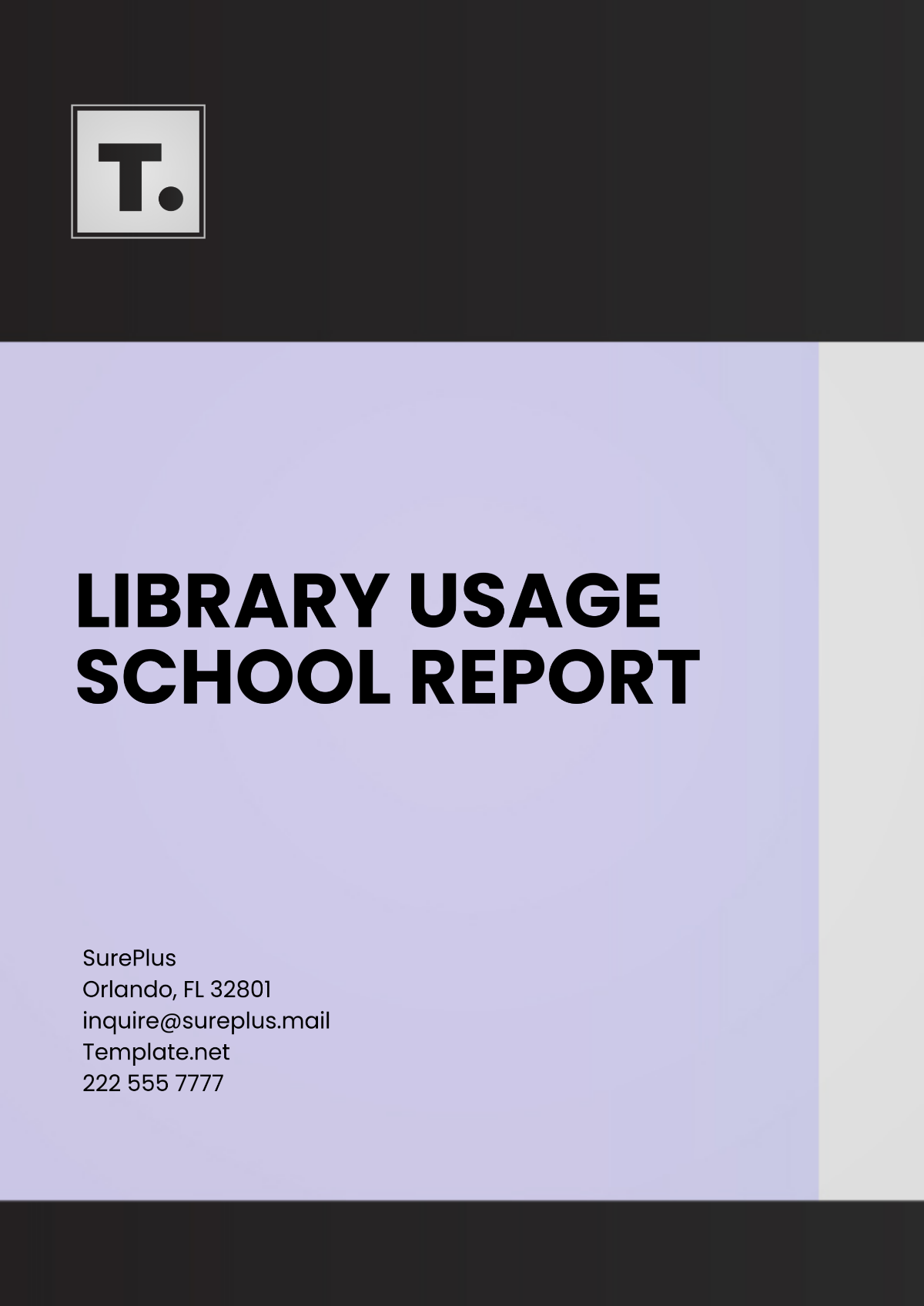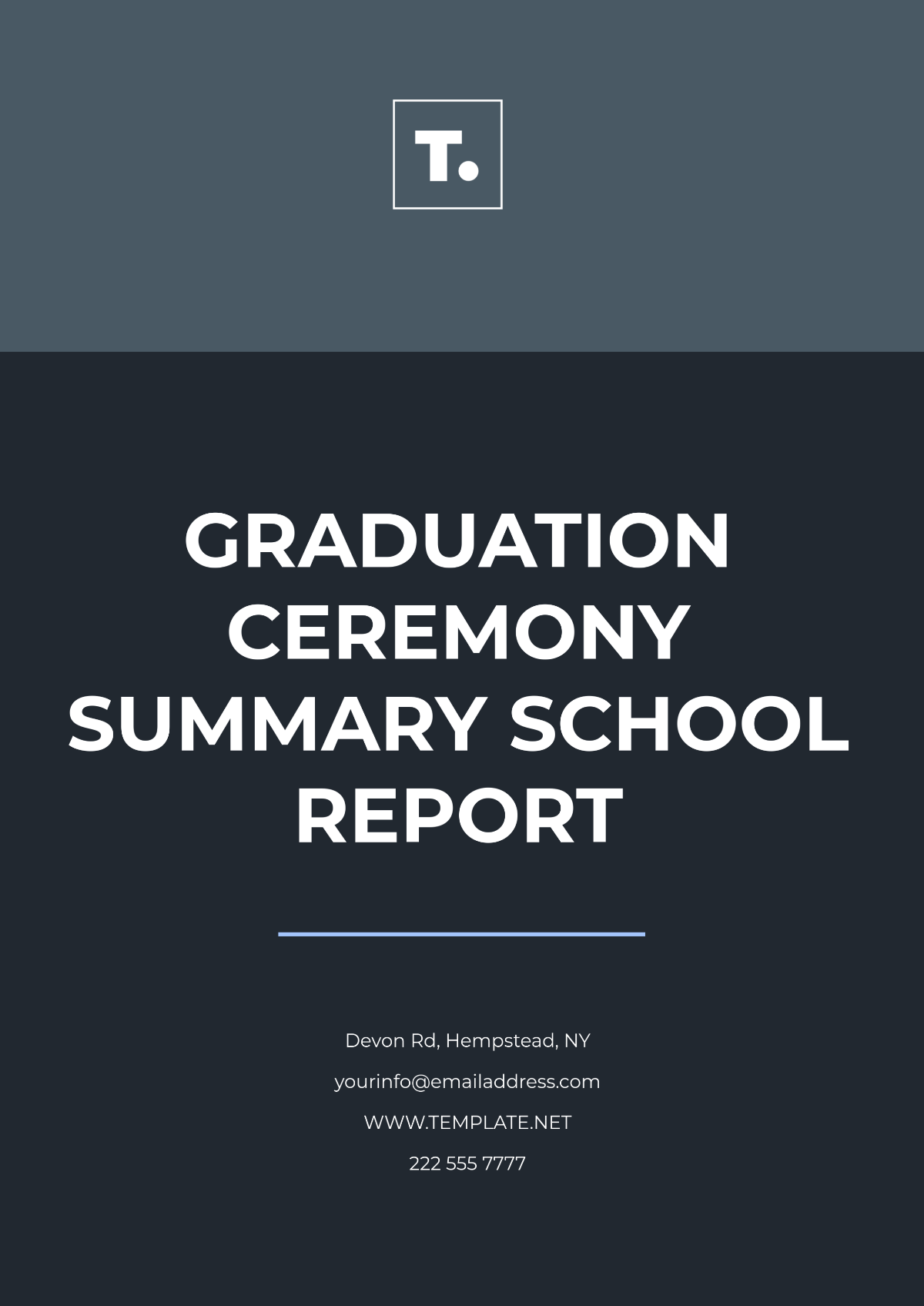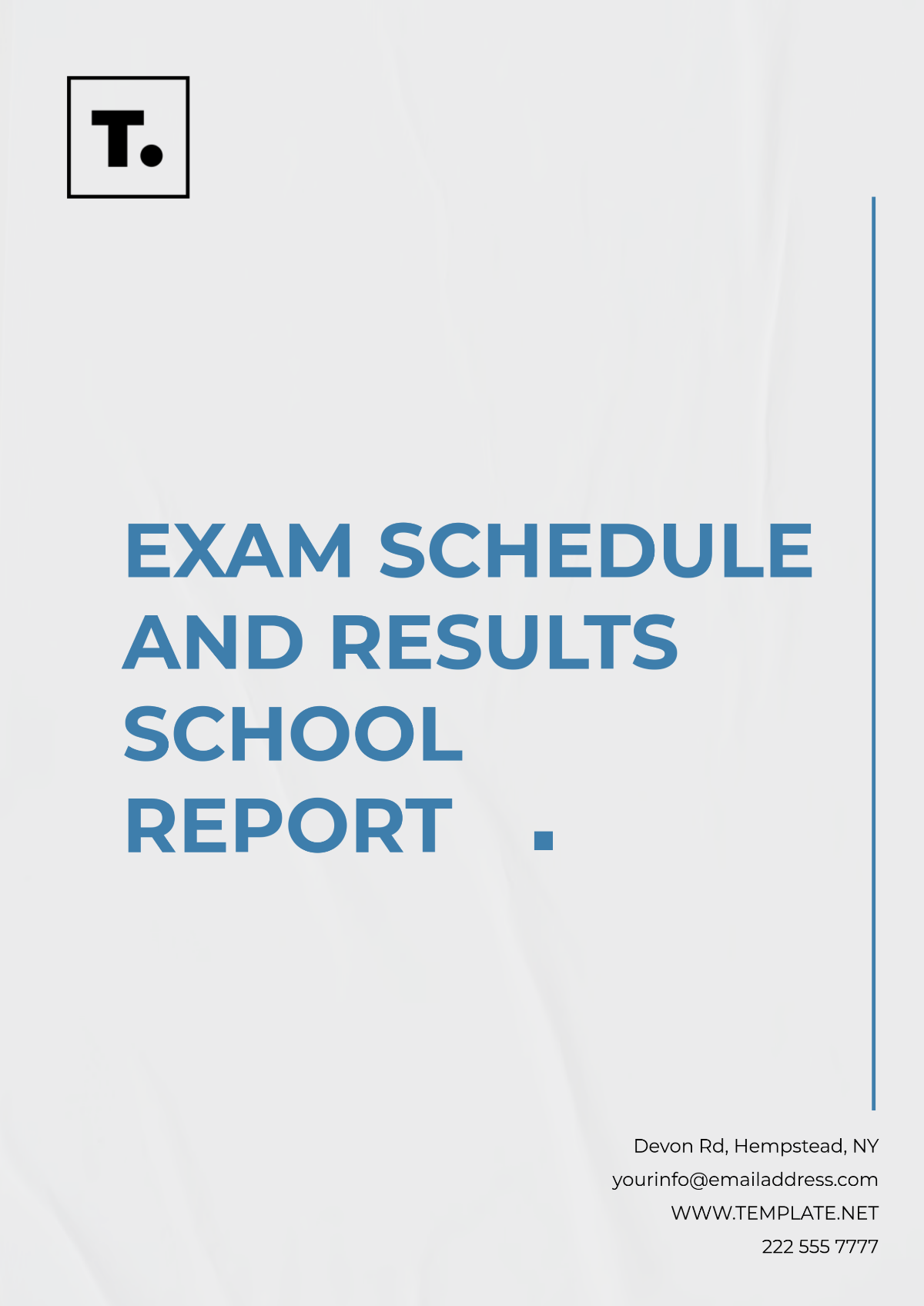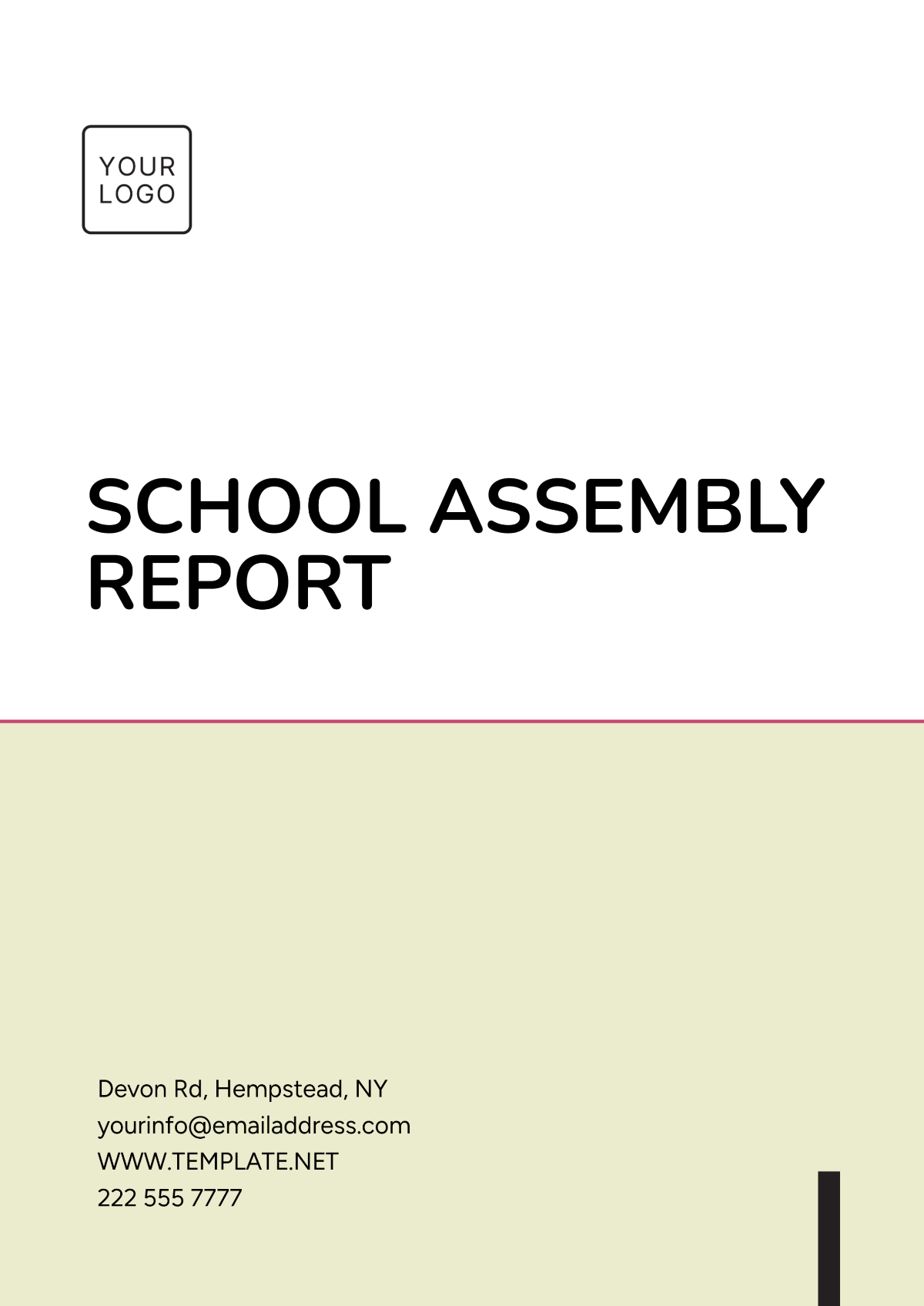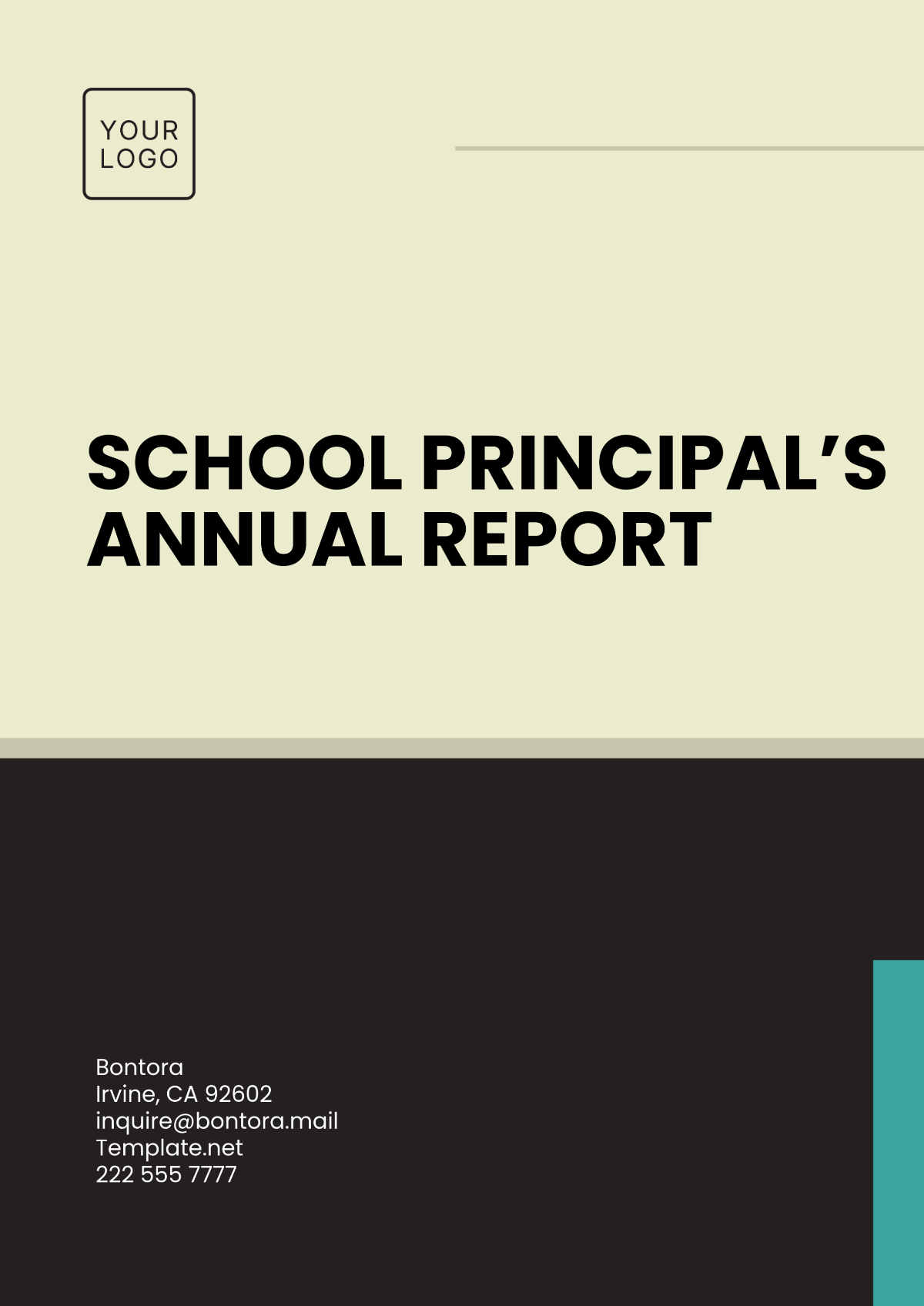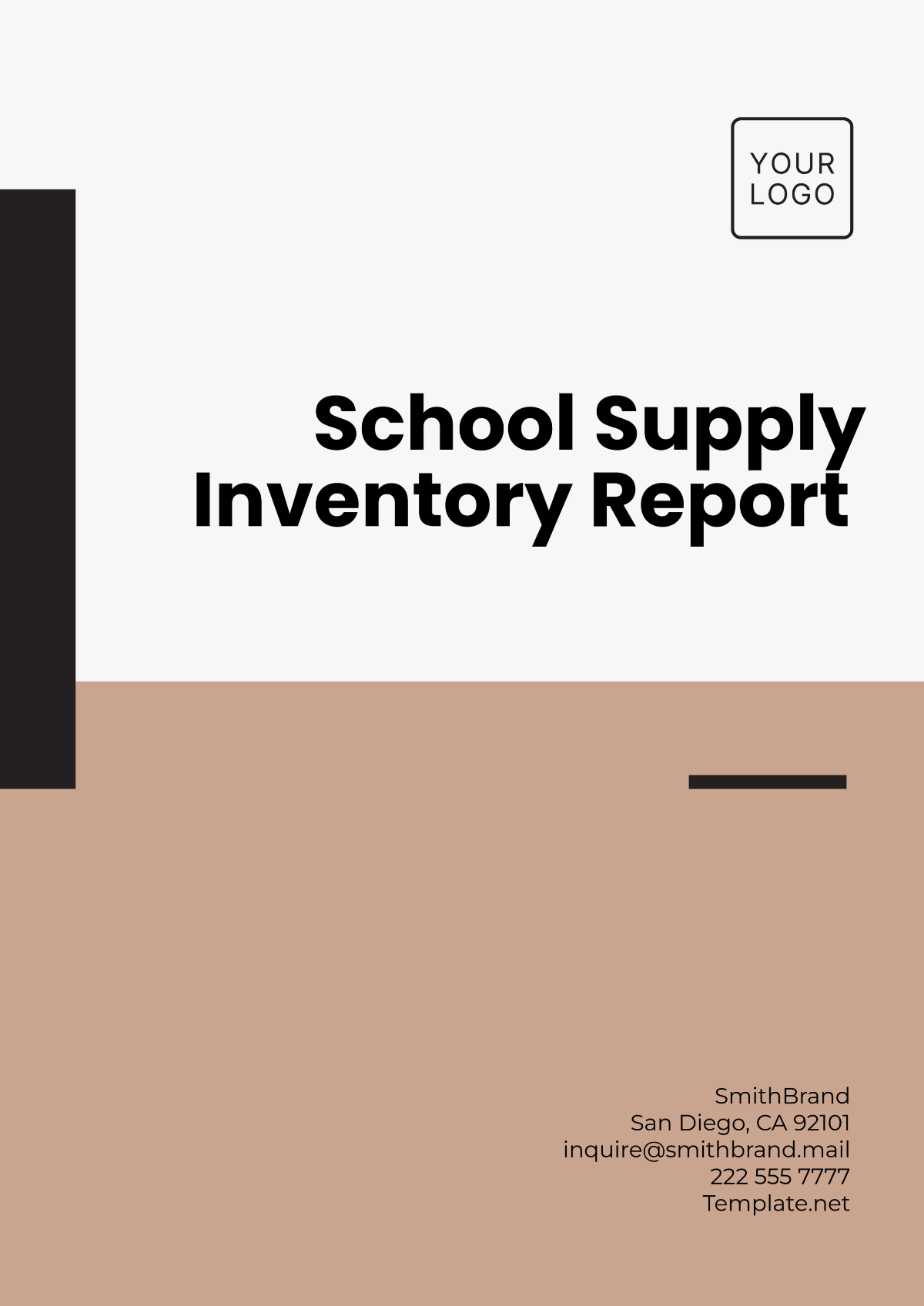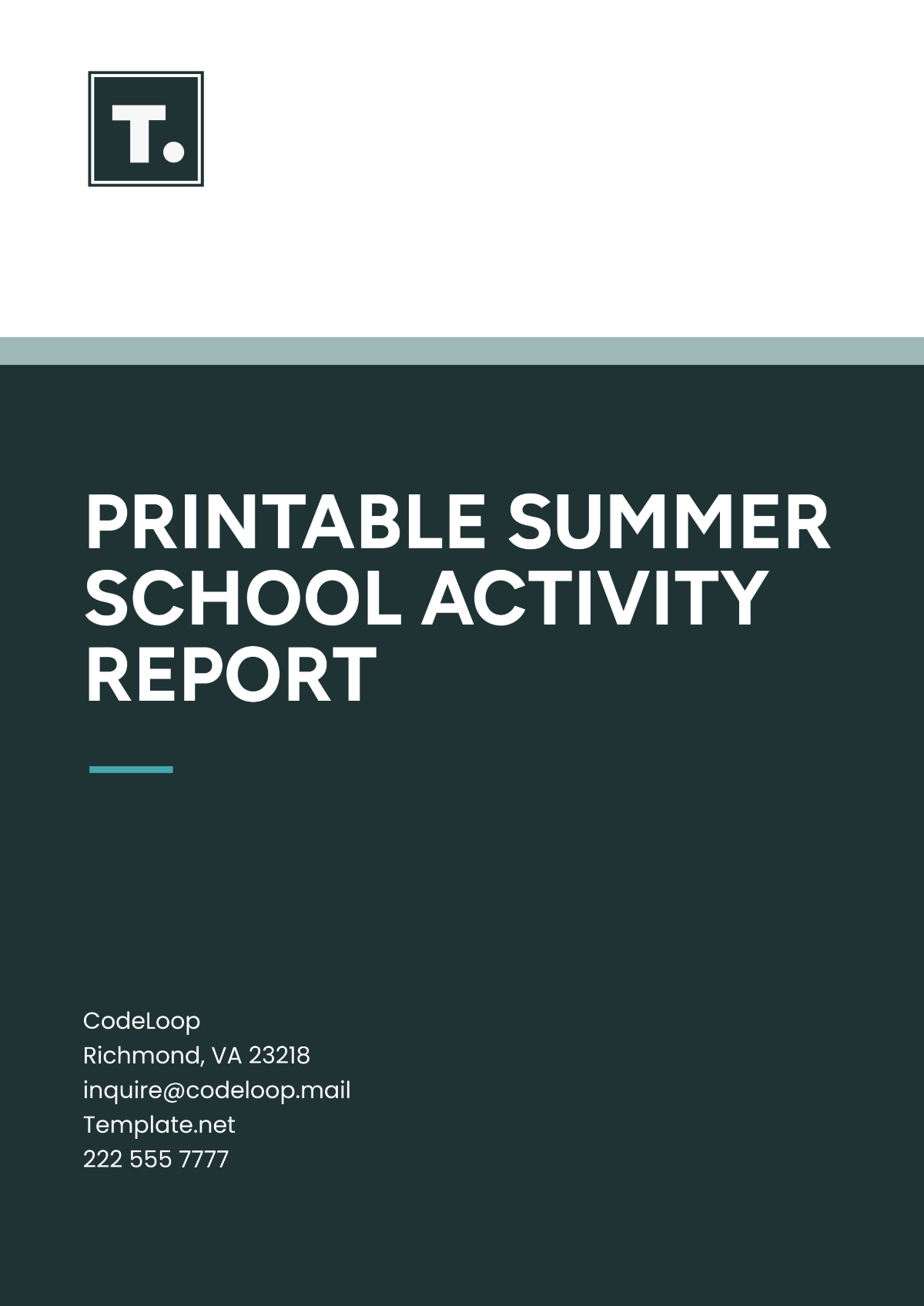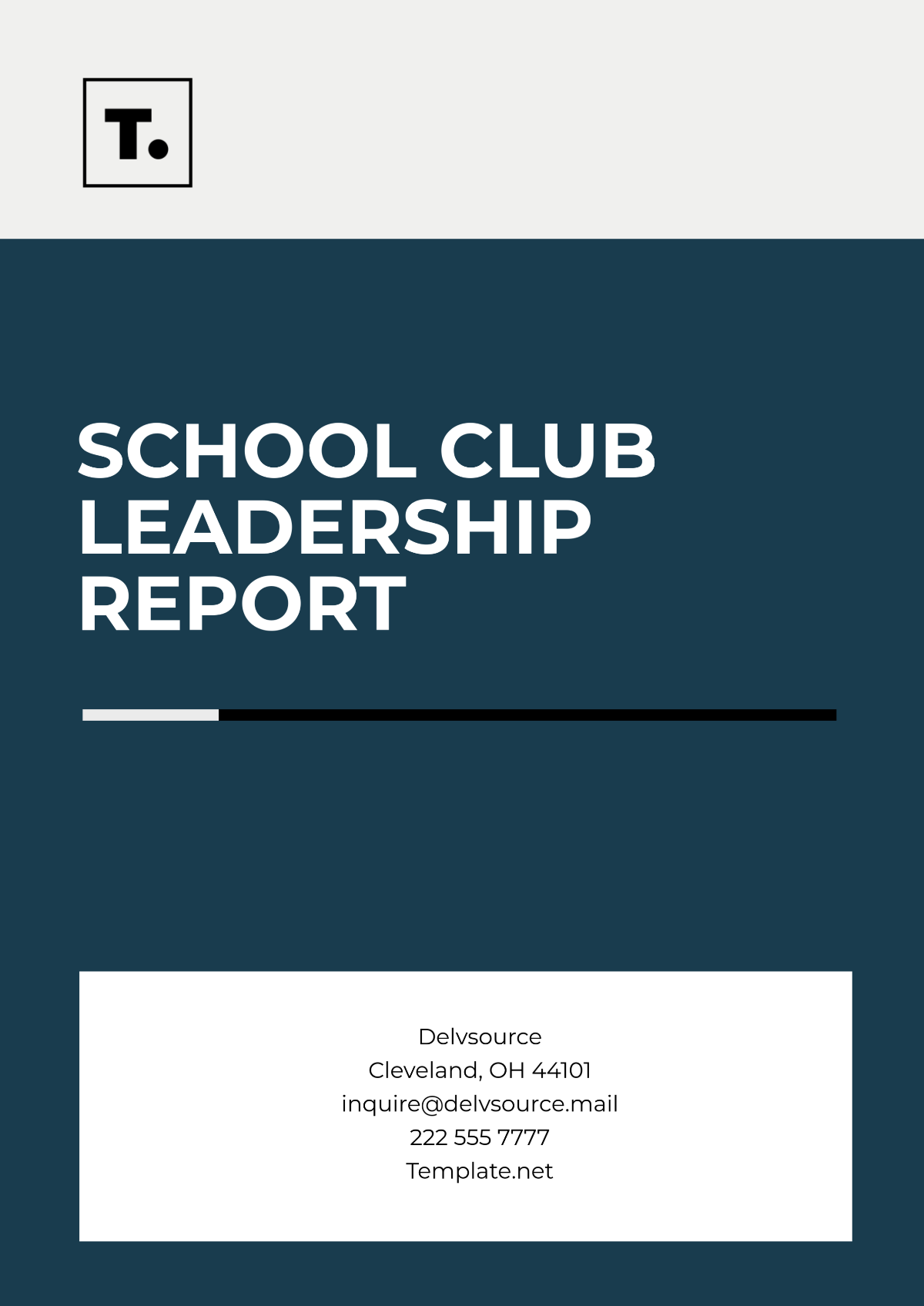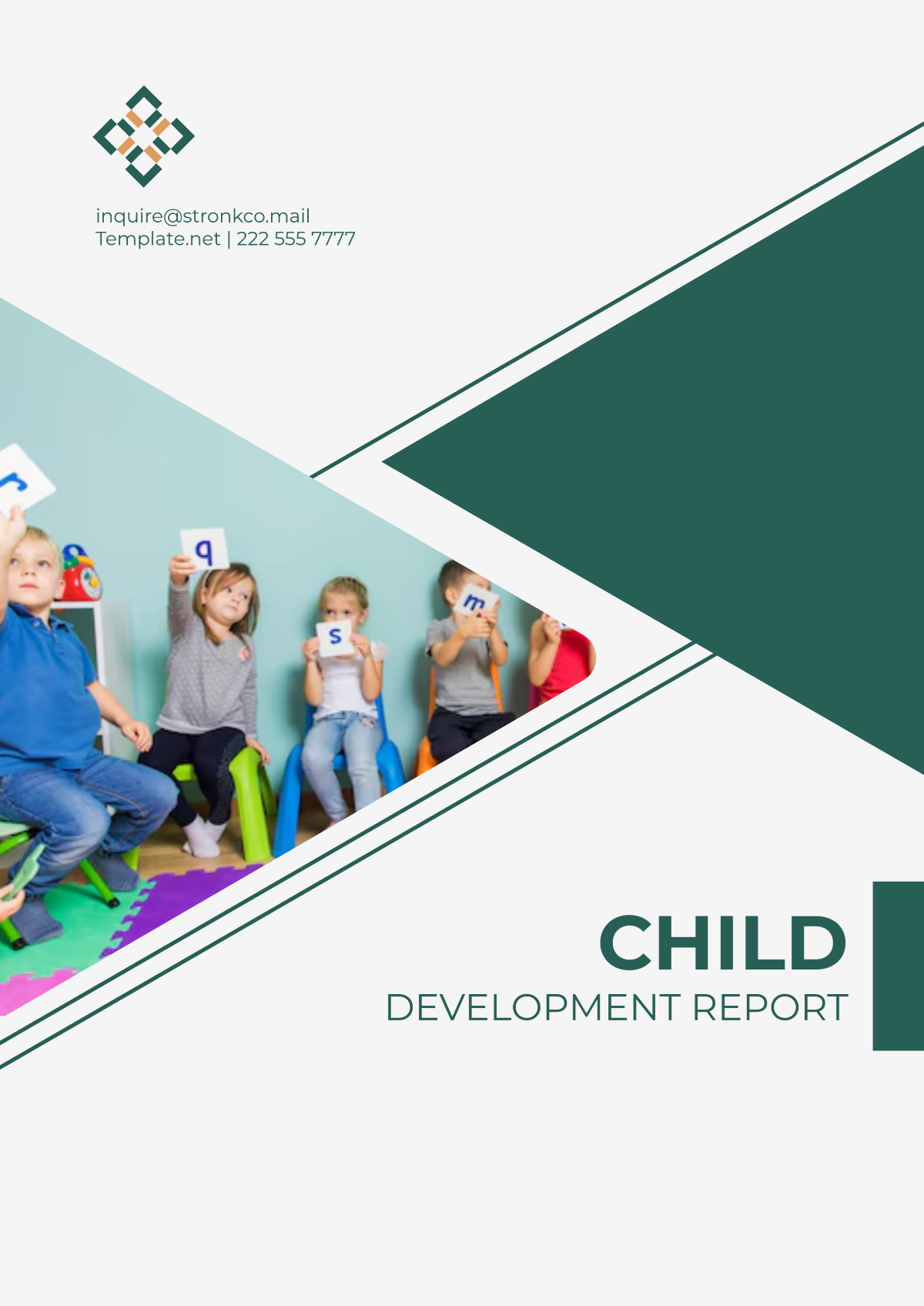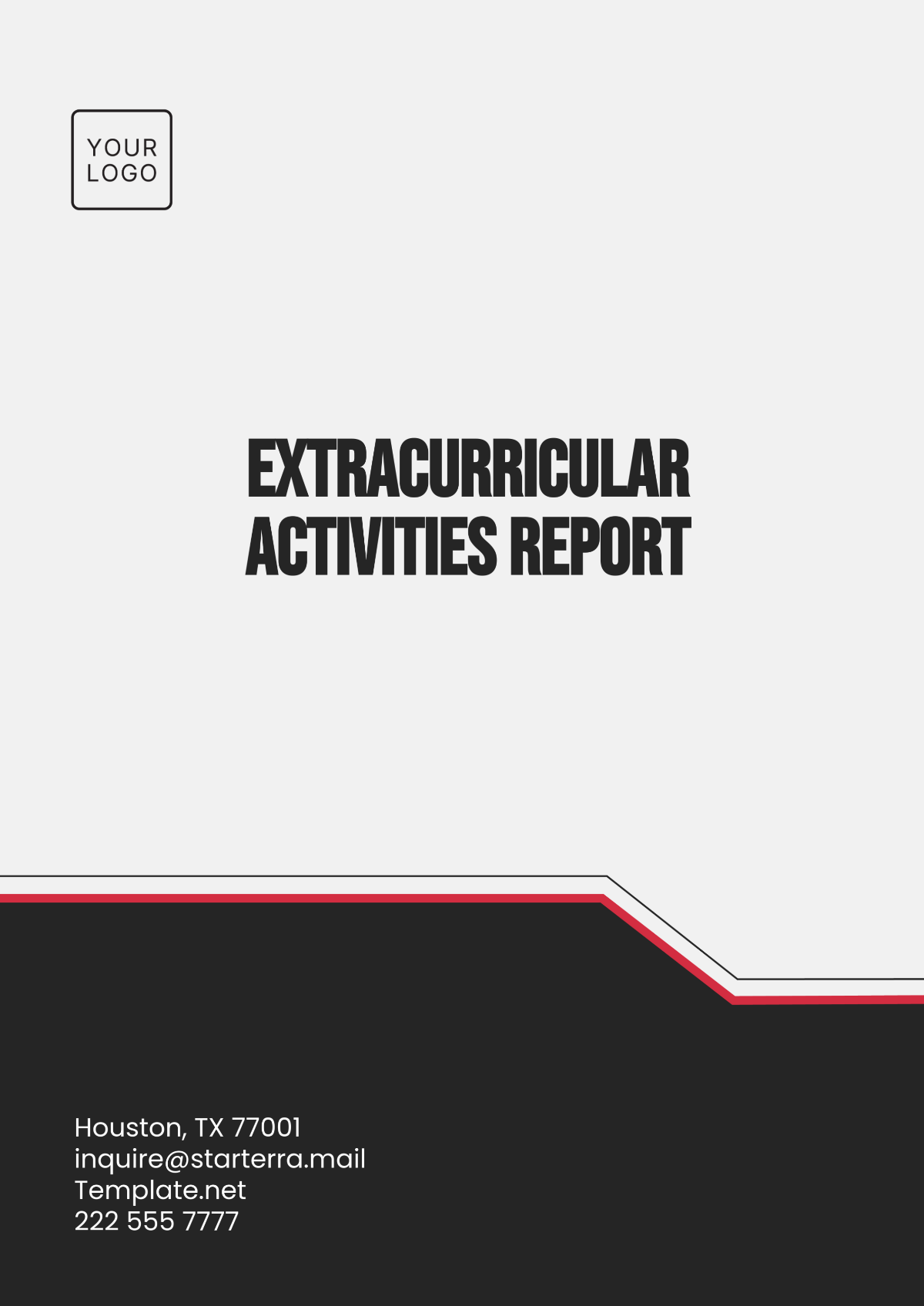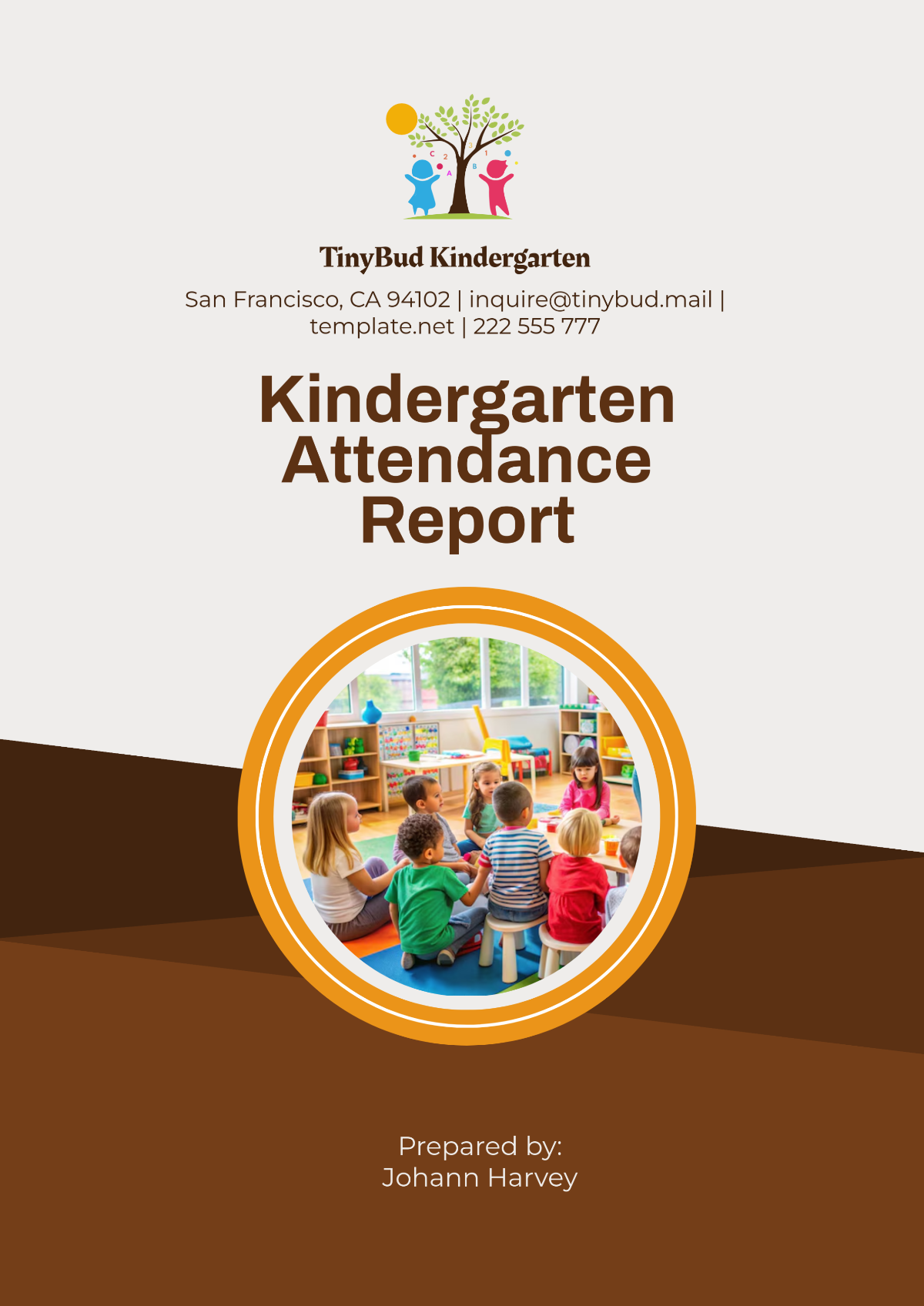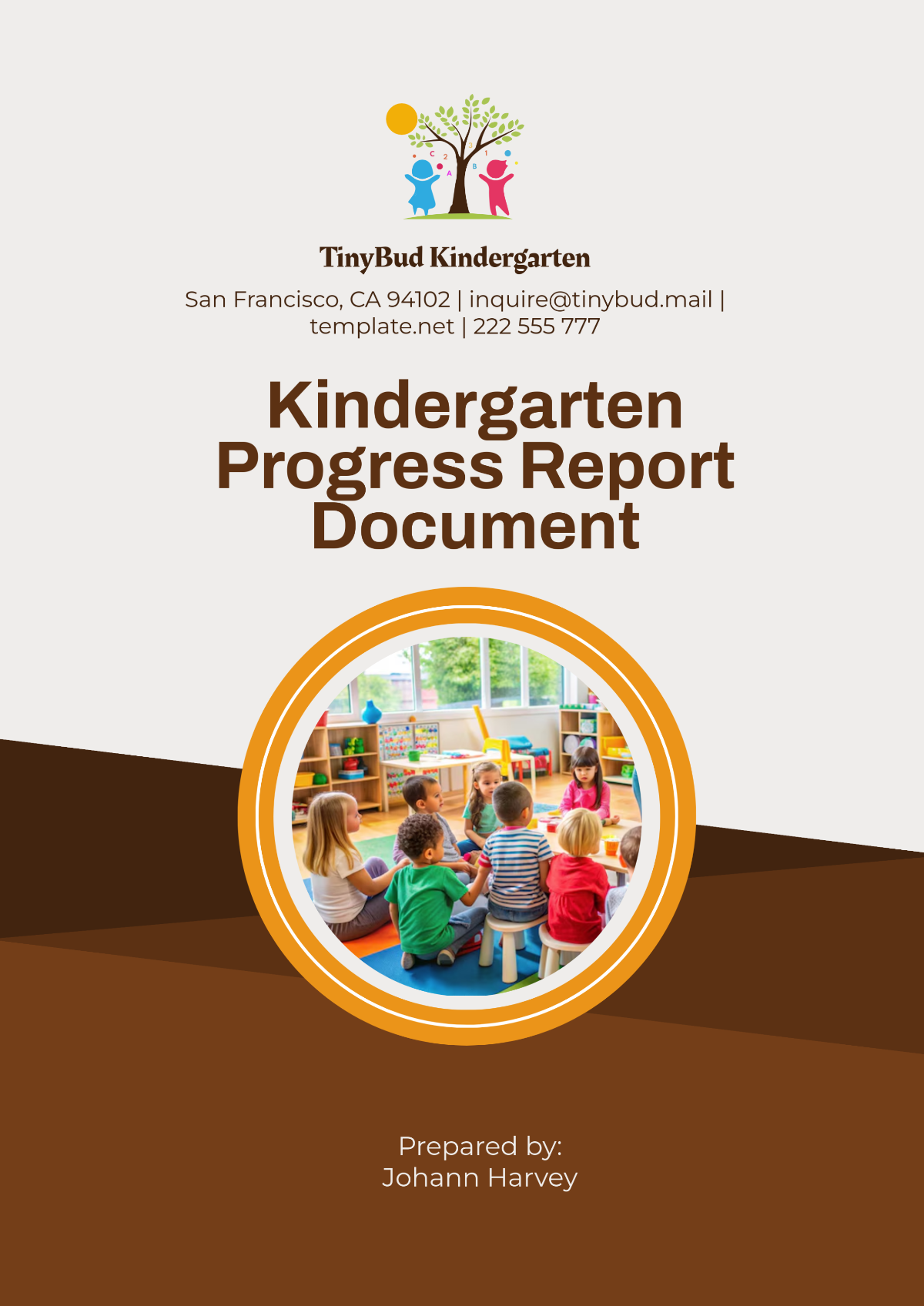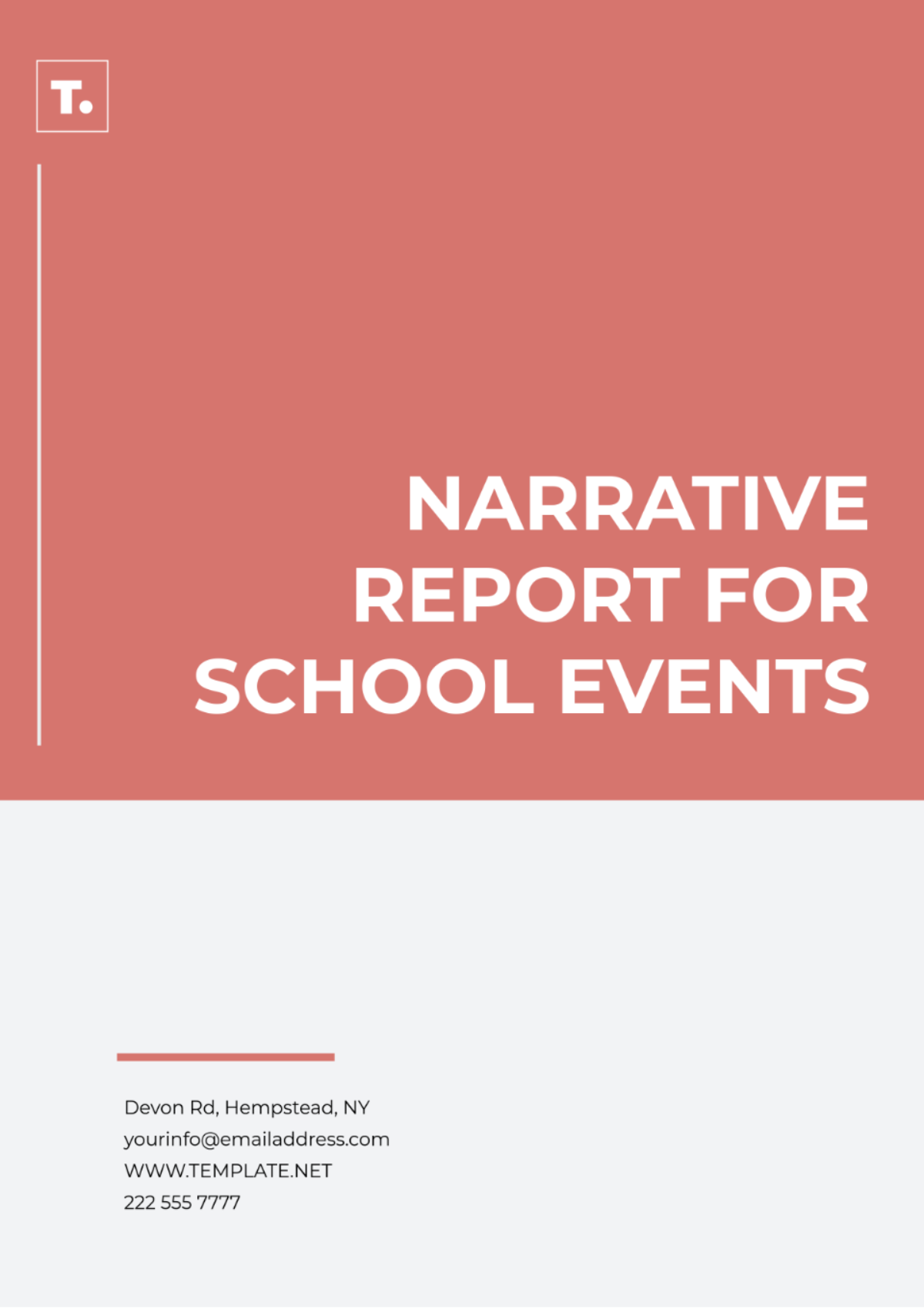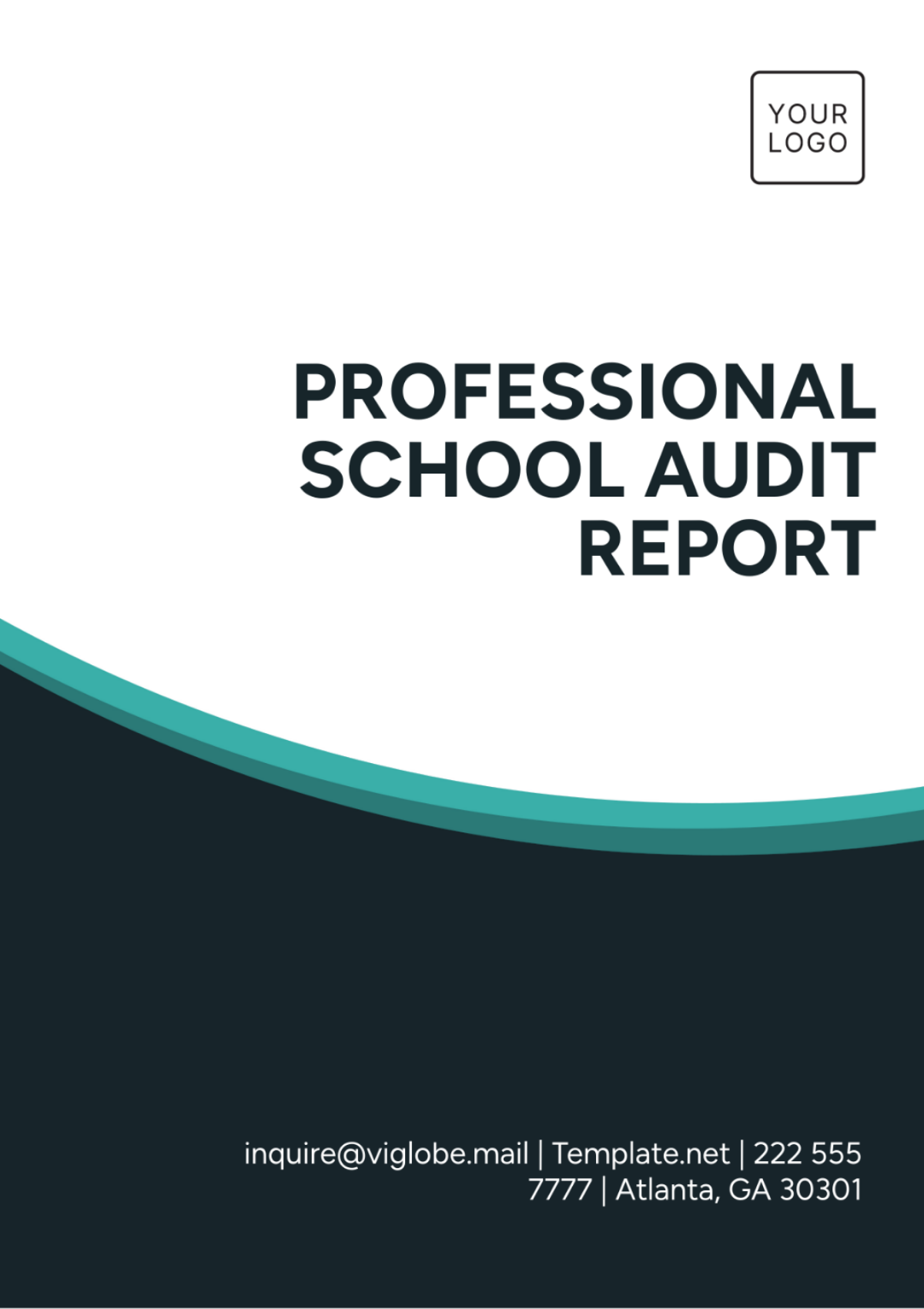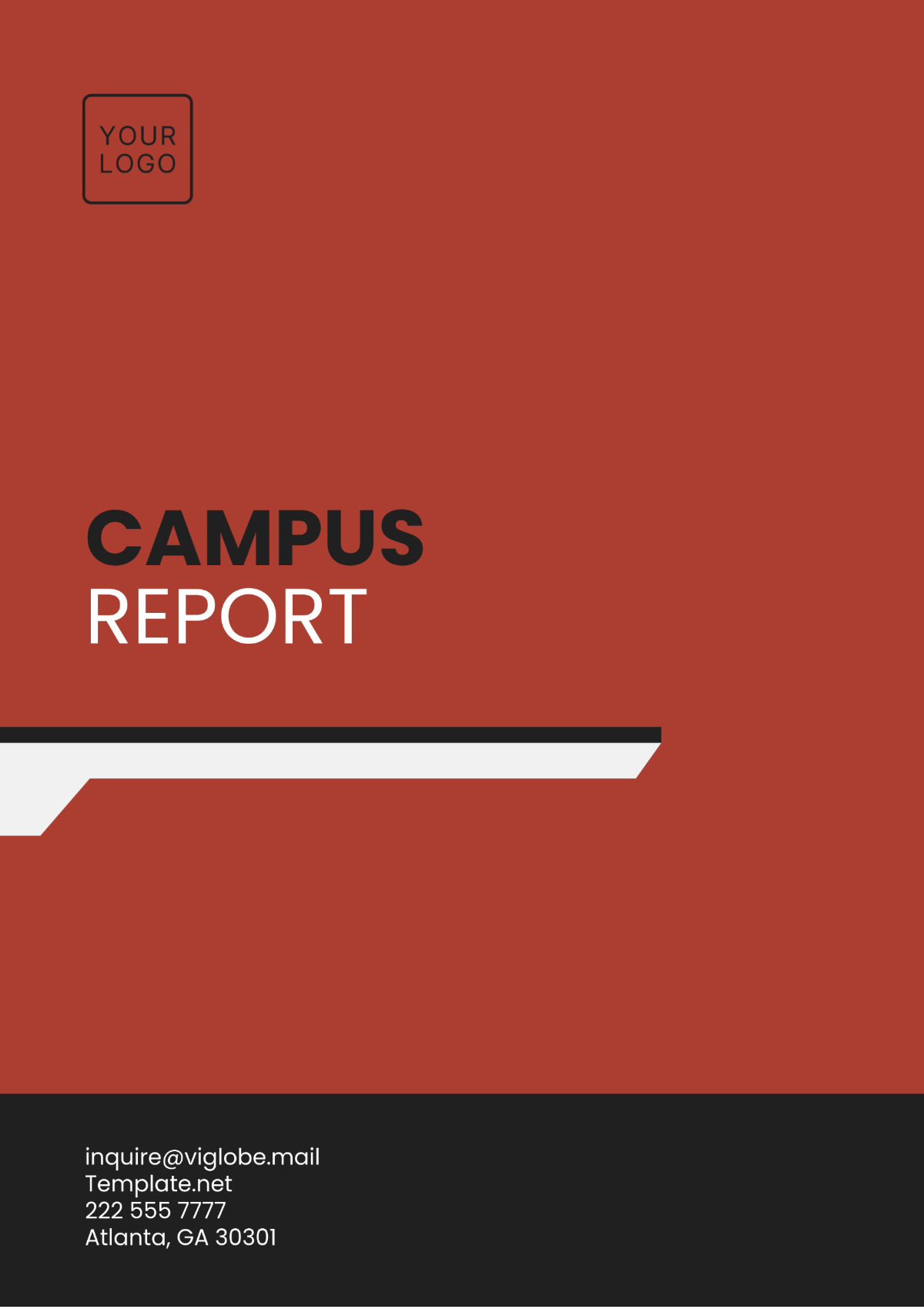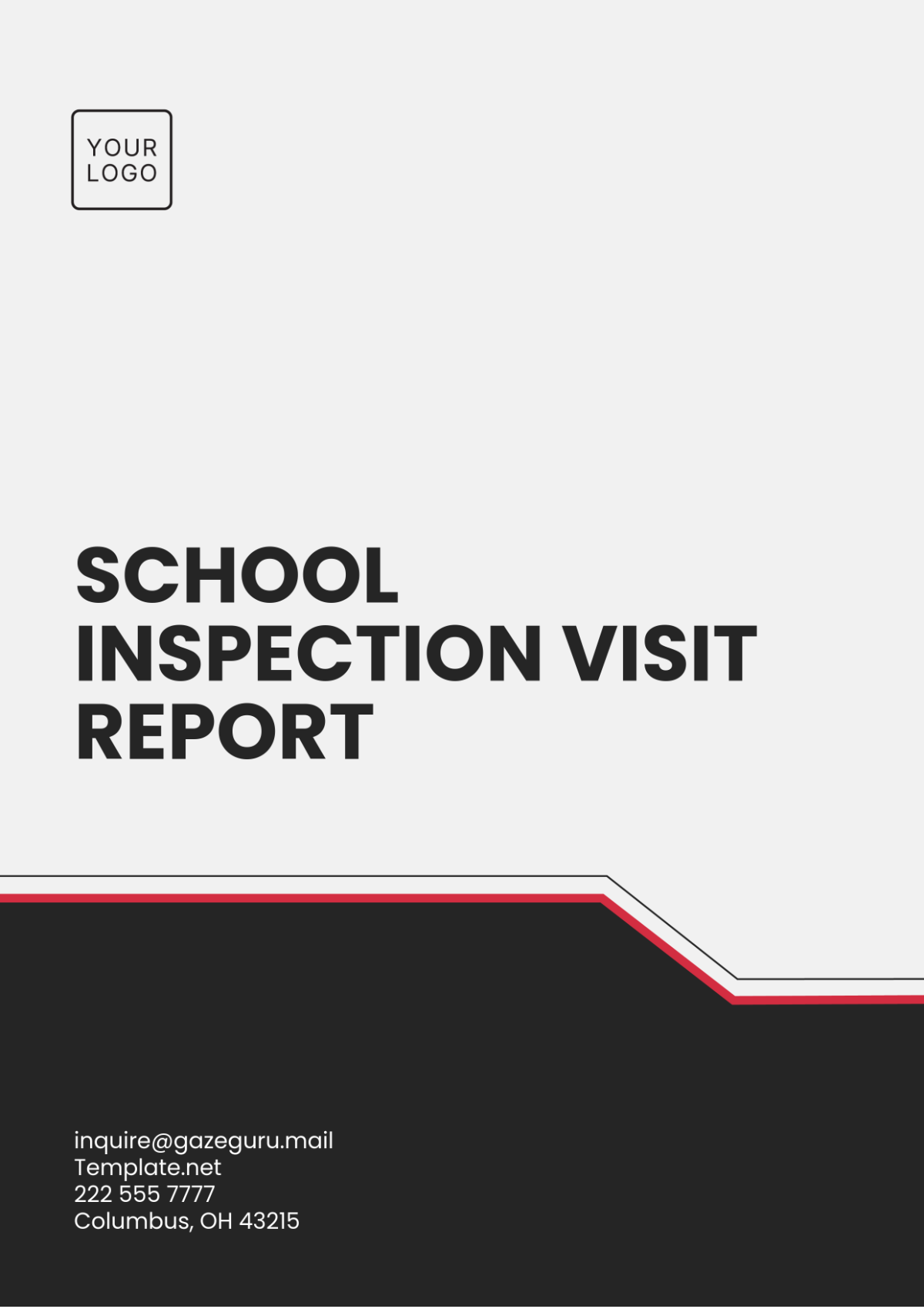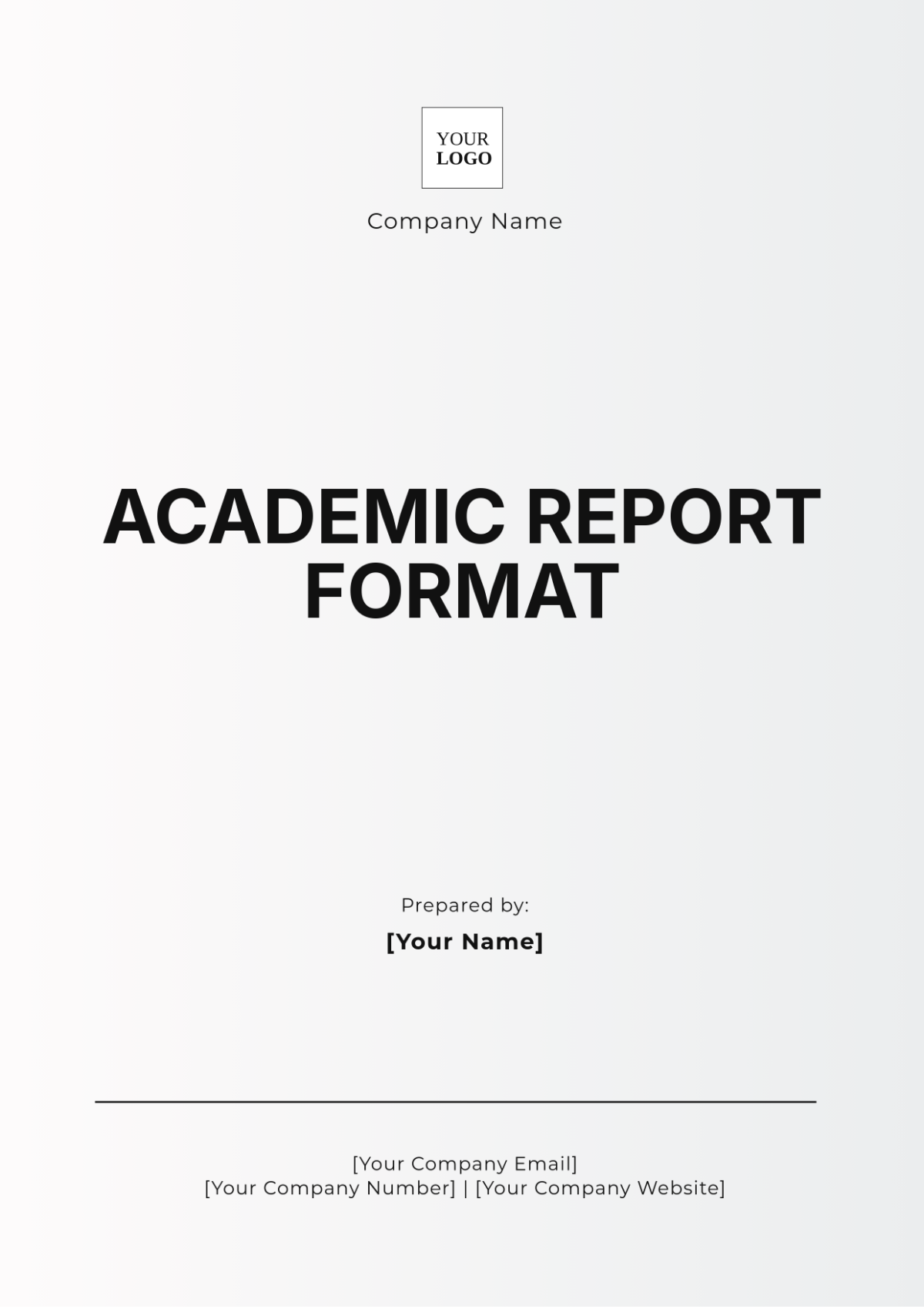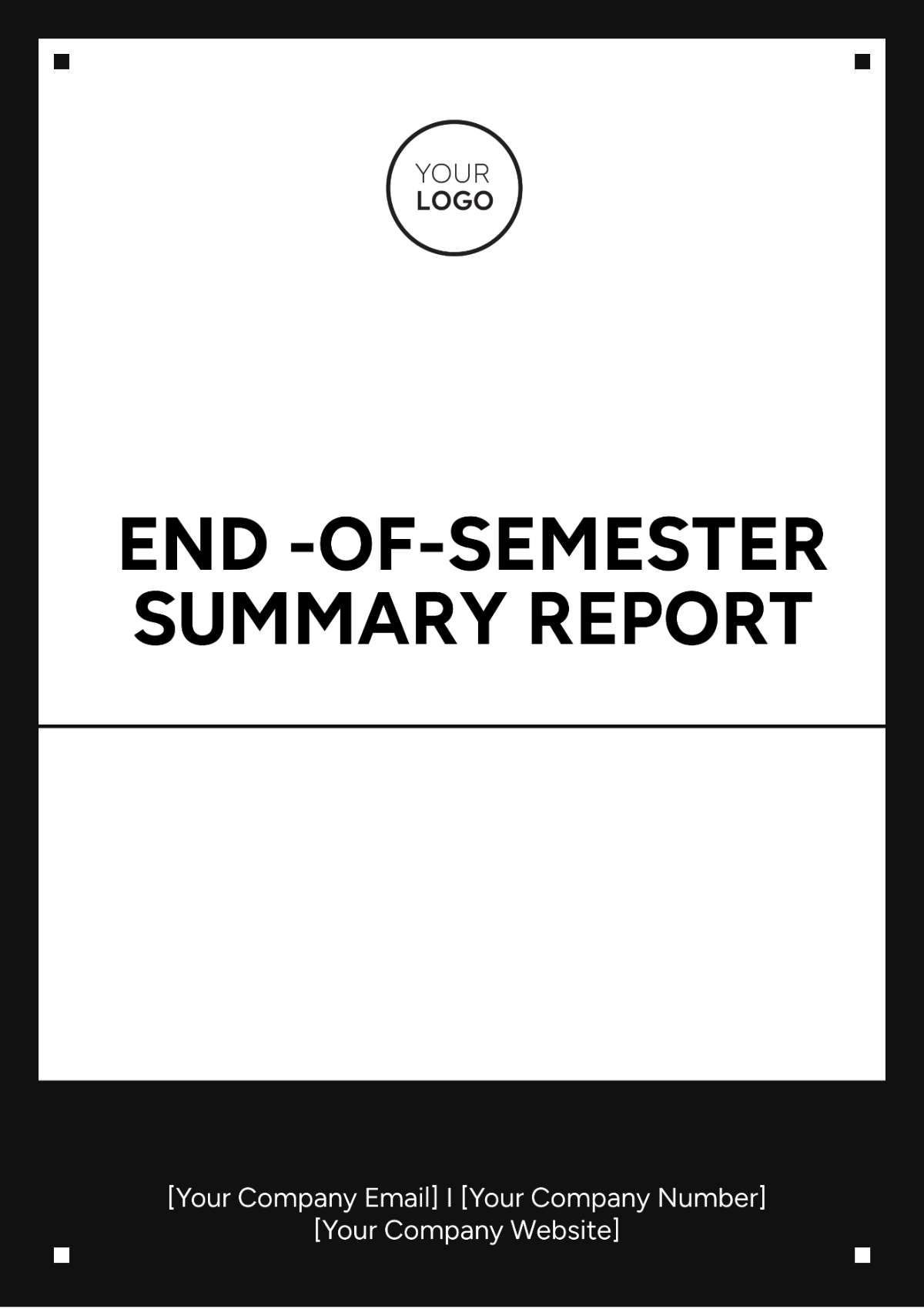Kindergarten Parent Communication Report
1. Introduction
1.1 Purpose of the Report
The Kindergarten Parent Communication Report is an essential part of our commitment at [Your Company Name] to maintain a strong, transparent, and collaborative relationship with the families of our students. We believe that an open line of communication is key to ensuring your child’s success. Through this detailed report, we aim to provide insights into your child’s academic and developmental progress, highlight areas where growth has been observed, and identify any opportunities for further improvement.
The report offers a comprehensive overview of each student’s progress in key developmental areas, including literacy, numeracy, social-emotional skills, and attendance. Additionally, it provides updates on program changes, upcoming events, and the various ways in which parents can be involved in their child’s learning journey. This will not only inform parents about their child's growth but also help us work together to create the most supportive and nurturing learning environment possible.
1.2 Overview of the Kindergarten Program
At [Your Company Name], we have designed a comprehensive kindergarten curriculum that nurtures the cognitive, emotional, and physical growth of each child. Our curriculum is built on research-based practices and is aimed at promoting academic learning, social development, creativity, and emotional well-being. Our kindergarten program for the academic year 2050-2051 has seen many exciting updates and advancements.
The class sizes in our program are small to ensure that every child receives individualized attention. Each class accommodates no more than [20 students] to ensure that teachers can provide tailored support to every child. This personalized approach is critical in fostering an environment where every child can thrive and develop their unique potential.
We aim to provide a rich learning environment that includes both structured activities and opportunities for creative exploration. Our weekly schedule includes [30 hours] of learning that balances core academic subjects, physical activity, social interaction, and creative exploration. We firmly believe that learning should be fun, engaging, and purposeful, which is why our program is designed to meet the needs of every learner through a balanced mix of activities.
2. Student Progress Overview
2.1 Academic Performance
At [Your Company Name], we use a range of assessment methods to monitor and evaluate each child’s academic performance. These assessments are designed to capture both the child’s progress and their areas of challenge. Regular observations, projects, and standardized testing allow us to create a comprehensive picture of each student’s academic growth.
Literacy
Literacy development is a central focus in our kindergarten program. By the end of the academic year, we aim for children to demonstrate proficiency in phonics, early reading, and basic writing skills. During this academic year, we introduced several new initiatives aimed at enhancing literacy skills. These initiatives include phonics games, guided reading sessions, and interactive storytimes.
The class average for literacy is currently at [83%], which is slightly above our target of [85%]. Many children have shown significant progress, with some reaching mastery in areas such as letter recognition, phonemic awareness, and basic sight words. However, there are a few students who still need additional support with letter sounds and blending words.
Numeracy
Numeracy is another important focus of our program, as we aim for children to develop a solid understanding of number sense, basic math concepts, and problem-solving skills. Our numeracy curriculum includes activities like counting games, shape recognition, and simple addition and subtraction tasks. The class average for numeracy is [78%], which is slightly below our target of [80%]. While many students have grasped the basic concepts, some will benefit from more focused intervention in areas such as counting beyond [10] and understanding simple addition.
Creativity
Our creativity curriculum is designed to encourage self-expression through art, music, and movement. This year, we introduced new projects such as the creation of individual art portfolios and collaborative group murals. Children have enjoyed expressing themselves through a variety of media, from paint and clay to digital tools. The creativity average for the class is [88%], which exceeds our target of [90%]. The highest performer has a score of [96%], indicating exceptional skill in various creative expressions.
Table: Academic Skill Development
Subject Area | Target (%) | Class Average (%) | Top Performer (%) |
|---|---|---|---|
Literacy | 85 | 83 | 95 |
Numeracy | 80 | 78 | 92 |
Creativity | 90 | 88 | 96 |
2.2 Social and Emotional Development
In addition to academic development, we also focus on social-emotional growth. The ability to interact with others, regulate emotions, and work collaboratively is critical in the early years of education. At [Your Company Name], we aim to create a learning environment where children feel safe to explore their feelings and develop meaningful relationships with peers.
Over the course of this year, we have noticed a significant improvement in the social skills of our students. Around [85%] of students are able to engage in cooperative play, share materials, and work well in group settings. This demonstrates a positive level of social interaction and indicates a high level of empathy among students.
In terms of emotional development, approximately [70%] of children can express their feelings appropriately and seek help when needed. This is a key area of focus, and we will continue to implement strategies like emotion cards, self-regulation techniques, and guided group discussions to further enhance emotional literacy.
2.3 Attendance and Punctuality
Regular attendance is vital for academic success, and we encourage families to prioritize consistent attendance. This year, our attendance rate has remained strong, with an overall average of [93%]. The data below highlights the monthly attendance rates for the academic year:
Attendance
Month | Attendance Rate (%) |
|---|---|
September | 95 |
October | 93 |
November | 90 |
We encourage families to notify the school in advance in case of planned absences. This helps ensure that we can provide any necessary resources to keep students on track.
3. Program Updates
3.1 Curriculum Enhancements
In response to feedback from both teachers and parents, we have made several exciting changes to our curriculum this year. These changes include new learning modules that address the growing importance of STEM education and global awareness.
STEM Education: The new STEM-focused activities were introduced to enhance problem-solving and critical thinking skills. These activities include building basic structures using blocks, simple coding exercises, and science experiments that engage children in hands-on learning.
Global Awareness: This year, we introduced a curriculum focused on learning about different cultures, traditions, and global communities. Through storybooks, virtual tours, and guest speakers, children are exposed to different parts of the world, helping them understand diversity and empathy from an early age.
3.2 Technology Integration
Technology is becoming increasingly integrated into the kindergarten classroom, not as a replacement for traditional learning, but as a tool to enhance it. We have introduced smart boards in each classroom to make lessons more interactive and engaging. Additionally, we are using educational apps that help children with early math, literacy, and fine motor skills.
The introduction of the [Your Company Name] Parent Portal has been a game changer in how we communicate with families. This app allows parents to track their child's progress in real-time, view updates on upcoming events, and access resources like suggested activities for continued learning at home.
3.3 Special Events
Throughout the year, we organize events that celebrate milestones, build school spirit, and create opportunities for children to showcase their talents.
Winter Showcase: This annual event allows students to present their projects and performances to their families. This year, we will be showcasing a range of creative projects, from science experiments to musical performances. The Winter Showcase is scheduled for December 10, 2050.
Kindergarten Field Day: Set for March 15, 2051, this outdoor event includes games, races, and physical activities aimed at promoting teamwork, coordination, and physical fitness. Families are encouraged to attend and join in the fun!
4. Teacher Feedback
4.1 Individualized Observations
Our teachers provide consistent and detailed feedback on each child's progress to ensure that all students are supported in their unique learning journeys. This feedback is carefully documented and shared during regular parent-teacher conferences, so parents are always in the loop regarding their child's development.
This year, we have seen remarkable improvements in many areas. For example, [Student Name] has demonstrated incredible leadership abilities, taking initiative during group projects and helping to mediate discussions between classmates. [Student Name] has made significant strides in communication, confidently expressing their thoughts during circle time and group activities.
In terms of fine motor development, [Student Name] has progressed exceptionally well in their ability to hold writing instruments correctly and write legibly, which was an area of focus early in the year. Additionally, [Student Name] has improved their ability to use scissors and other small tools with greater precision.
We pride ourselves on adapting our approach to meet each child's needs, whether it’s providing additional support or offering enrichment activities to challenge them further. Through individualized observations, we are able to create tailored goals for each child that cater to their learning pace and developmental stage.
4.2 Classroom Behavior
Overall, classroom behavior has been positive, with students increasingly demonstrating their ability to work collaboratively, follow instructions, and engage with their peers in respectful ways. Our teachers have implemented several strategies to reinforce positive behavior, including regular praise, reward systems, and role-playing activities designed to practice social skills.
However, we have identified a few areas for improvement that will be a focus in the upcoming months. Some students continue to face challenges with maintaining focus during independent work time. We are actively incorporating mindfulness techniques and structured break times to help students improve concentration. We will also continue to emphasize the importance of listening skills by incorporating listening games, which allow children to actively practice being attentive and following instructions.
Our teachers have set up additional one-on-one check-ins for students who need support in these areas. These sessions aim to help children strengthen their self-regulation skills, particularly in managing their impulses and staying on task.
4.3 Social-Emotional Growth
In addition to academic growth, social-emotional development remains a core focus of our curriculum. This year, we've seen significant improvements in the way children interact with one another, including better conflict resolution skills and an increased ability to express emotions appropriately.
Several students have shown leadership qualities by stepping up to help peers who might be struggling, whether socially or academically. For example, [Student Name] has consistently demonstrated kindness by including others in activities and offering words of encouragement. This kind of social-emotional development is critical to their overall growth and lays the foundation for healthy interpersonal relationships in the future.
We will continue to foster these social skills through group activities and role-playing exercises, helping children learn how to cooperate, empathize, and resolve conflicts in a positive way.
5. Parental Involvement
5.1 Workshops and Resources
We believe that parental involvement is essential to a child’s success in kindergarten. To support parents in this important role, we offer a variety of workshops and resources designed to equip families with the tools they need to support their child's learning and development at home.
This year, our workshops covered topics such as early literacy, emotional intelligence, and creating a structured home environment that encourages learning. One of our most popular workshops was on the importance of play in early childhood development. Parents learned how to integrate educational activities into everyday play, such as sorting games, pretend play, and nature walks that enhance both cognitive and social skills.
In addition to in-person workshops, we introduced an online resource center, which houses an extensive collection of articles, videos, and activity suggestions for parents. This resource center is regularly updated and available 24/7 through our Parent Portal, making it easy for parents to access materials that are relevant to their child’s current stage of development.
5.2 Feedback Channels
We recognize the importance of keeping open lines of communication between the school and home. To encourage continuous dialogue, we offer multiple ways for parents to share feedback and stay informed about their child’s progress.
Regular surveys and feedback forms are sent out to parents, allowing them to express their thoughts on the program and suggest areas for improvement. We also offer quarterly parent-teacher conferences, where teachers meet with parents one-on-one to discuss their child’s academic and social progress, answer any questions, and set goals for the coming term.
6. Next Steps and Recommendations
6.1 Actionable Goals for Parents
While we are thrilled with the progress our students have made so far, there are always ways to continue supporting their development at home. As we move into the second half of the year, we encourage parents to work with their children to set achievable, personalized goals that will continue to build on their strengths and address any areas of challenge.
For example, reading together for 20 minutes each night is an excellent way to support early literacy and language development. Additionally, practicing basic math skills through fun, hands-on activities like counting objects, sorting shapes, or using measuring cups in the kitchen can reinforce math concepts in a meaningful way.
6.2 School-Parent Collaboration
A strong partnership between school and home is essential to a child's development. We believe that the more we work together, the better outcomes we can achieve for each student.
We encourage parents to stay involved by attending school events, volunteering when possible, and maintaining open communication with teachers. Attending events such as family nights, seasonal celebrations, and parent forums not only strengthens the bond between home and school but also shows children that their learning is valued both inside and outside the classroom.
Regular communication between parents and teachers is vital for ensuring that each child’s needs are met. If parents have concerns or questions about their child’s progress, we welcome them to reach out at any time. Our teachers are always available for check-ins and will work collaboratively with families to ensure that children receive the necessary support.
7. Conclusion
As we reflect on the progress made this year, we are proud of the hard work and dedication demonstrated by our students, teachers, and families. Our kindergarten program has fostered a nurturing and dynamic learning environment that encourages children to explore, create, and grow.
We are committed to providing individualized support that meets each child’s unique needs, and we look forward to continuing this journey alongside our families. Together, we can ensure that every child reaches their full potential, academically, socially, and emotionally.
Thank you to all the parents for your ongoing support, feedback, and involvement. We are excited for what the rest of the year holds and are confident that, with continued collaboration, every child will continue to thrive.
We look forward to another successful year of learning and growth!
